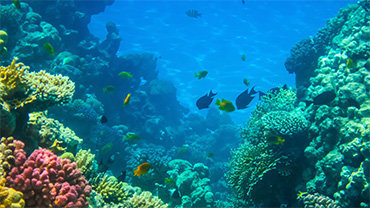
As general entry requirement they should be contemplated in some of the presumptions of the article 6 of the RD 99/2011 or of the second additional provision of such Royal Decree.
ENTRY REQUIREMENTS/CRITERIA:
As a specific requirement must be met:
(a) Previous studies
(a.1) They must have completed the Master’s Degree in Biodiversity or the Master’s Degree in Integrative Evolutionary Biology of the University of Valencia associated with the doctoral programme. In the event of holding the Diploma d'Estudis Avançats
(DEA-a tertiary education degree)- obtained according to the Royal Decree 778/98– or the Research Proficiency- according to the regulations of the Royal Decree 185/85– , they must have been completed within Doctoral Programmes related to this.
(a.2) Also may be admitted who have completed other master’s degree studies or others studies of a similar level, whether they come from higher education systems which do not provide the Master’s degree -- with related content in the field of biology and its methodologies that represent at least 30 credits.
(b) Recommendation.
Although letters of recommendation are not required, it is recommended that the candidate for admission establish prior contact with any of the professors of the programme for a future direction or co-direction of the doctoral thesis.
(c) Languages
Applicants must demonstrate their knowledge of the English language equivalent to level B1 (European classification).
If applicants do not have the certification and English is not their first language, they will be able to take an ad hoc exam. For this, if the applicant has a disability, the Unit for the Integration of People with Disabilities of the UVEG will be consulted in order to ensure the appropriateness of the exam. The students who fulfil the requirements will entry the doctoral programme, and the Doctoral Studies Academic Committee will be the responsible for verifying the compliance of the above requirements for the admission of the applicant.
Admission criteria:
STUDENTS WITH SPECIAL EDUCATIONAL NEEDS:
Regarding to entry systems and procedures adapted to students with special educational needs, the University of Valencia has the Unit for the Integration of People with Disabilities (UPD), which ensures the respect for the principle of equal opportunities and non discrimination and supports the collective of students with special educational needs. The “Service Charter” of this unit (http://upd.uv.es/index.php/cartaservicio.html), informs about quality commitments and rights and duties of users.
Likewise, and according to the Royal Decree 1892/2008, of 14 November, which regulates the conditions for accessing to official university undergraduate degrees and the admission procedures to Spanish public universities , the 5% of places available will be reserved for students who have a recognised disability of at least 33%, as well as for those students with permanent special educational needs associated with personal circumstances of disability, who during their previous academic life have needed resources and support for their full educational normalisation.
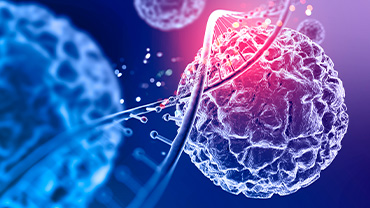
The interest in biomolecular disciplines has shifted from basic research to laboratory applications in health and biotechnological companies, in a process with scientific and social implications. On the one hand, the future professionals in Molecular Sciences must know the molecular mechanisms that govern the function of organisms with biotechnological interest, or of the human body in health and disease, in order to adapt its specific terminology to these professional areas facilitating the exchange of knowledge about diagnosis, prognosis, experimental and therapeutic components of biotechnological and healthcare processes. On the other hand, the professionals on life sciences should know in depth the methodological tools of their field and its analytical potential with an interdisciplinary perspective that is imposed for the future of these areas. This doctoral program aims to train specialists to face this highly relevant dialogue.
Entry requirements:
1. To have taken and completed a minimum of 60 ECTS of the followings Master’s Degrees of the University of Valencia:
2. To have passed 60 credits included in one or more University Master’s degrees.
This modality may include training complements
3. To hold a Diploma de Estudios Avanzados (Tertiary Education Diploma) obtained according to the provisions of the Royal Decree 77/1998, 30 April, or to have reached the research proficiency regulated by the Royal Decree 185/1985, 23 January.
4. To hold an Undergraduate Degree whose duration according to the rules of Community Law is at least of 300 credits.
In the cases 2, 3 and 4 of the entry requirements and depending of the project Doctoral thesis presented, the Academic Committee of the Doctoral Programme will consider if the studies taken are equivalent to those required for accessing to the research period of this programme (case 1) and, if applicable, the student is required to take any module or curriculum of some of the Master’s Degrees mentioned in the section 1.
The admission in the Programme of students from another country requires that their Master’s degree should be recognised in the University of Valencia.
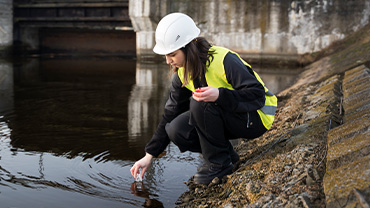
Entry requirements: They should be contemplated in some of the presumptions of the article 6 of the RD 99/2011 or of the second additional provision of such Royal Decree.
Ideal entry profiles: Having completed a Master’s degree in Chemical, Industrial, Environmental, Agricultural or Civil Engineering, Biotechnology or other studies of the same level and branch of knowledge with equivalent contents. In the event of holding the Diploma d'Estudis Avançats (DEA-a tertiary education degree)- obtained according to the Royal Decree 778/98– or the Research Proficiency- according to the regulations of the Royal Decree 185/85– ,they must have been completed within Doctoral Programmes related to Chemical Engineering.
Other Profiles: For students with additional entry profiles (master’s degree in the fields of Chemistry and Life, Earth and Environmental Sciences), Specific bridging courses, with a total of 30 credits, are stablished. These courses are explained in detail at section 3.4 of COMPLEMENTARY TRAINING.

In addition to meeting the requirements for admission to doctoral programmes stipulated in RD
99/2011, the following entry profiles to the Doctoral Studies are stablished:
1. To hold the Master’s Degree in Electrochemistry: Science and Technology or to hold the Diploma d’ Estudis Avançats (a tertiary education degree) in the Doctoral studies in Electrochemistry: Science and Technology regulated by the Royal Decree
778/1998.
2. To hold a EHEA Master’s Degree with a training equivalent to the Master’s Degree in Electrochemistry: Science and Technology.
3. To hold a degree which give access to the doctoral programme in areas of Chemistry, Engineering
or related fields including at least 16 ECTS credits and methodological training in research or
equivalent, and have completed the Master’s Degree Final Project, undergraduate degree or equivalent of research nature.
4. To hold a degree which give access to the doctoral programme in areas of Chemistry, Engineering
or related fields not included in point 3
The Doctoral Programme Academic Committee will be responsible for establishing the degrees considered in points 2, 3 and 4 of this rules of admission.


As general entry requirement they should be contemplated in some of the presumptions of the article 6 of the RD 99/2011 or of the second additional provision of such Royal Decree.
In general, in order to access the Doctoral Programme in Experimental Techniques in Chemistry and, According to the Royal Decree 99/2011, 28 January, which regulates the official doctoral studies, it will be necessary to hold the Spanish qualifications of Undergraduate Degree, or equivalent, and of University Master’s Degree.
Likewise, access is permitted to applicants under the following circumstances:
a) To hold a Spanish university qualification or from other country of the European Higher Education Area, which gives access to the Master’s Degree, according to the provisions of the article 16 of the Royal Decree 1393/2007, 29 October, and they should have passed at least 300 credits of their official university studies, from which at least 60 have to be of Master’s studies.
b) To hold an Undergraduate Degree whose duration, according to the rules of Community Law, is at least of 300 ECTS credits. Said graduates should compulsorily take the training complements, except the range of courses of the corresponding undergraduate degree includes training credits in research, equivalent in training value to the credits in researche coming from master’s degree studies.
c) The university graduates who, before obtaining a training place in the corresponding entry test for specific health training, have passed with a positive assessment at least two training years of a programme for obtaining the official certificate of any of the specialisations in Health Sciences.
d) To hold a degree obtained according to foreign educational systems, without the need of its accreditation, after verification by the university that it certifies a level of training equivalent to the official Spanish qualification of the Master’s Degree and which confers in the issuance country of the degree the access to doctoral studies. This admission does not imply, in any case, the accreditation of the previous degree or its recognition for other purposes different to the access to Doctoral Studies.
e) To hold other Spanish Doctoral qualification obtained according to previous university regulations.
ENTRY REQUIREMENTS/CRITERIA:
As specific requirement:
Acceptance to the Doctoral Programme will be done according to the following profiles:
a) Ideal entry profile to the Doctoral Programme in Experimental Techniques in Chemistry: the candidates shall have taken the Master’s degree in Experimental Techniques in Chemistry at the UV
associated to this doctoral programme or the Master’s degree in Sensors for Industrial Applications by the Universitat Politecnica de València.
In the event of holding the Diploma d'Estudis Avançats (DEA-a tertiary education degree)- obtained according to the Royal Decree 778/98– or the Research Proficiency- according to the regulations of the Royal Decree 185/85– , they must have been completed within Doctoral Programmes related to this.
b) Other entry profiles to the Doctoral Programme in Chemical Experimental Techniques can also be accepted if they have taken master’s degrees different to the above mentioned, preferably those who have taken previous Degrees or Llicenciatura in Chemistry, Pharmacy, Food Science and Technology, Human Nutrition and Dietetics, Environmental Sciences, Chemical Engineering, Chemical Technology or certificates corresponding to other experimental sciences and technologies and this case, the students may be required to take specific bridging courses at the level of Master’s degree in Chemical Experimental Techniques which is developed at the UV.
The students who fulfil the requirements will entry the doctoral programme, and the Doctoral Studies Academic Committee will be the responsible for verifying the compliance of the above requirements for the admission of the applicant.

The profile of the students who access the doctoral programme in Information Technologies, Communications and Computing, is the profile of a graduate in Telecommunications Engineering, Computer Science, Mathematics and related, who have taken a Master’s Degree along the same lines.
More concretely, the recommended entry profile corresponds to students who have acquired the prior abilities and knowledge that are obtained when passing some of the following official master’s degree of Universitat de València:
Nevertheless, it may be considered adequate the obtained profile when passing other related master’s degrees or with a minimum of 60 ECTS that come from different related master’s degrees.
The languages to be used in the training process will be Spanish, English or Valencian, therefore a good level in at least one of these languages is required. Good level in at least one of these languages, both in oral and written expression. It is advisable in any case
It is advisable in any case that the student has an acceptable level of English.
ADMISSION REQUIREMENTS:
As general entry requirement they should be contemplated in some of the presumptions of the article 6 of the RD 99/2011 or of the second additional provision of such Royal Decree.
Besides, the students should fulfil the following specific requirements:
· Having taken and passed the studies conductive to some of the official master’s degrees of Universitat de València associated to the programme (the current list of these master’s degrees is included in “recommended profile” in the previos section 3.1). In the event of holding the Diploma d'Estudis Avançats (DEA-a tertiary education degree)- obtained according to the Royal Decree 778/98– or the Research Proficiency- according to the regulations of the Royal Decree 185/85–, they must have been completed it within Doctoral Programmes related to this.
· For any other assumption, the Academic Committee of the Doctoral Programme will evaluate whether the carried out studies are equivalent to those generally demanded to access the research period of this Doctoral Programme.
The students who fulfil the requirements will entry the doctoral programme, and the Doctoral Studies Academic Committee will be the responsible for verifying the compliance of the above requirements for the admission of the applicant.
The Academic Committee of the Doctoral Programme will study and resolve any admission petition that does not adjust to the criteria previously established, based on the available information.

This is a joint doctorate degree of the Universitat Politècnica de València and the Universitat de València. The students to which this program is targeted are graduates in Mathematics, Statistics, Physics, any other Experimental Sciences and any Superior Engineering. It aspires to become a referent for the training of future Mathematics researchers in the Valencian Community. The recommended student profiles are post-graduates having the Master’s degree in Mathematics Research (UV-UPV).
This programme has its precedent in the Official Post-graduate Programme in Mathematics (adapted to the RD 56/2005 of 21 January, which regulates post-graduate official university studies). It included a Master’s and a Doctoral degree, and was distinguished with the Quality Mention of the Ministry of Education and Science, which was renewed from the 2008/2009 to the 2010/2011 academic years. This post-graduate programme was created by merging the 3rd Cycle Mathematics Interdepartmental Programme of the la Universitat de València (with the collaboration of the departments of Algebra, Mathematical Analysis, Geometry and Topology, and Applied Mathematics) and the doctoral programme of Multidisciplinary Mathematics of the Universitat Politècnica de València (with the academic structure responsible of the Department of Applied Mathematics), both courses having a special mention. The Doctoral Programme in Mathematics has been awarded the Mention of Excellency of the Ministry of Education for the 2011-2012, 2012-2013 and 2013-2014 courses. Only 14 doctoral degrees in mathematics in Spain have received this mention (Resolution 6th October 2011, of the General Secretary of Universities, BOE 20th October 2011).
The Specific Entry Requirements to the Doctoral Programme in Mathematics are the following:
-The admission of students to the Doctoral Programme in Mathematics will be carried out by the Academic Committee, appointed for that purpose. All those students who have completed the credits corresponding to the Inter-University Master’s Degree INVESMAT and defended their Master’s Degree final Project can take these Doctoral Studies. Likewise, all those students who are holders of a Diploma d’Estudis Avançats (A tertiary education degree) obtained by the doctoral programmes of the Royal Decree 778/1998 “Cross-disciplinary Mathematics” of the Department of Applied Mathematics of the UPV and the “Inter-department Doctoral Programme” of the Faculty of Mathematics of the UV.
-Those students who have completed a number of credits equivalent to the Master’s Degree INVESMAT in other Master’s Degrees, both from Spain and abroad which are within the field of Mathematics or that come from other Doctoral Programmes both national (Royal Decree 778/1998) and foreign countries, always that the Doctoral Studies Academic Committee will issue a favourable report. Such Academic Committee will require the information necessary of the students about their knowledge and they will make a proposal on the admission conditions of the students, establishing if necessary the tutelage that consider academically appropiate.
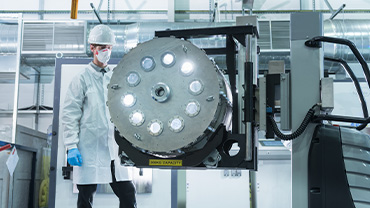
In recent years, certain scientific fields, such as supramolecular chemistry, molecular biology, or surface and low-temperature physics have achieved a remarkable development in our country. Research groups that have obtained an excellent competitive position at international level in an area that is already known as Nanoscience and Nanotechnology and is already strategic in National and International Programmes have been formed.
In these areas, physicists, chemists, biologists, physicians and engineers work on obtaining, manipulating, organising, studying and exploiting the properties of nano-sized objects. Maintaining a competitive position in Nanoscience requires a high level of competence, specialisation and an adequate multidisciplinary training of the researcher.
This doctoral programme involves groups of recognised prestige from the Departments of Inorganic Chemistry, Organic Chemistry, Physical Chemistry and Applied Physics of the universities of Valencia (UV), Alicante (UA), La Laguna (ULL) and Castilla la Mancha (UCLM), which gives it the multidisciplinary character and critical size needed to become a national benchmark in this strategic area. Most of these groups are integrated in university research institutes such as the Institute of Molecular Science (ICMol) of the UV; the Institute of Materials (IUMA) of the UA; the University Institute of Advanced Studies in Atomic, Molecular and Photonic Physics (IUDEA) of the ULL and the Institute of Nanoscience, Nanotechnology and Molecular Materials (INAMol) of the UCLM.
This doctoral programme in Nanoscience and Nanotechnology was created in 2007 and received, by the Ministry of Education, the Quality Award in October 2008 (Reference MCD2008-00082) and the Excellence Mention in October 2011 (Reference MEE2011-00194).
The official Doctoral Programme in Nanoscience and Nanotechnology is registered in the RUCT with code 5601462.
The training period of the PhD is the Official Master’s degree in Molecular Nanoscience and Nanotechnology.
As a general access requirement, students must be in one of the situations listed in article 6 of RD 99/2011 or in the second additional provision of said Royal Decree.
Recommended entry profile: Students must have completed at least 60 ECTS of the Master's degree in Molecular Nanoscience and Nanotechnology or any other Master's degree related to Nanoscience and Nanotechnology.
In this formative stage, the student should have developed the following abilities:
1. Ability to analyse and synthesise scientific problems.
2. Ability to develop the different stages involved in a research project (from the bibliographic search to the statement of objectives, the design of the experiment through the use of the appropriate methodology, the analysis of the results and the drawing of conclusions).
3. Multidisciplinary training in chemistry, physics and materials science, including biochemical aspects, enabling him/her to communicate with experts in these areas and to understand the language of nanoscience.
The student must demonstrate a B2 level knowledge of English, which guarantees that they will be able to make the presentations of their research work in English at local or international meetings and conferences.
ADMISSION CRITERIA
To have a letter of acceptance from a research group participating in the doctoral programme to carry out the doctoral student's doctoral thesis within it.
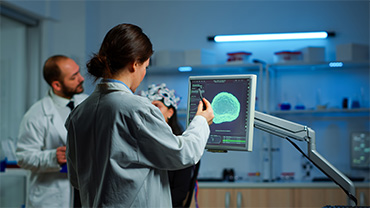
ENTRY REQUIREMENTS:
As general entry requirement they should be contemplated in some of the presumptions of the article 6 of the RD 99/2011 or of the second additional provision of such Royal Decree.
ENTRY REQUIREMENTS/CRITERIA:
a) Appropriate profile. Those students who have taken the Master’s degree in Basic and Applied Neurosciences by the UV or the Euromediterranean Master’s degree in Neurosciences
and Biotechnology in the ISIS-Tempus consorce. These master’s degree are associated to this doctoral programme. In the event of holding the Diploma d'Estudis Avançats (DEA-a tertiary education degree)- obtained according to the Royal Decree 778/98 or have obtained the Research Proficiency according to the regulations of the Royal Decree 185/85–, they must have been completed it within Doctoral Programmes related to this.
b) Other profiles. B) Those who have completed other master’s studies different to those mentioned before may be also admitted. The Doctoral Studies Coordinating Committee will study each particular case and will determine, if necessary, the need to take complementary training while taking the master’s degree.
The students who fulfil the requirements will entry the doctoral programme, and the Doctoral Studies Academic Committee will be the responsible for verifying the
compliance of the above requirements for the admission of the applicant.

ENTRY REQUIREMENTS:
As general entry requirement they should be contemplated in some of the presumptions of the article 6 of the RD 99/2011 or of the second additional provision of such Royal Decree.
ENTRY REQUIREMENTS/CRITERIA:
As specific requirement:
a) Students should have taken the Master’s Degree in Advanced Physics of the University of Valencia associated with this Doctoral Programme or any other Master’s degree
in Physics of the EHEA. Students holding a Master’s degree in engineering focused on physics, a Master’s degree in Chemistry or Mathematics of EHEA may be suitable profiles. In the event of holding the Diploma d'Estudis
Avançats (DEA-a tertiary education degree)- obtained according to the Royal Decree 778/98
– or the Research Proficiency- according to the regulations of the Royal Decree
185/85–, they must have been completed it within Doctoral Programmes related to this.
b) Also applicants who hold a qualification in
Physics, engineering focused on physics, Chemistry or Mathematics, obtained
according to foreign educational systems, without the need of its accreditation, after verification
by the university that it certifies a level of training equivalent
to the official Spanish qualification of the Master’s Degree and which confers in the issuance country
of the degree the access to doctoral studies. The affinity of
this qualifications will be determined by the Academic Committee of the Doctoral Programme in
Physics. As a guiding criterion, it is considered appropriate studies of two cycles,
one basic and one of specialization, with a duration of
five years of University studies.
The students who fulfil the requirements will entry the
doctoral programme, and the Doctoral Studies Academic Committee
will be the responsible for verifying the compliance of the above
requirements for the admission of the applicant.

ENTRY REQUIREMENTS:
As general entry requirement they should be contemplated in some of the presumptions of the article 6 of the RD 99/2011 or of the second additional provision of such Royal Decree.
ENTRY REQUIREMENTS/CRITERIA:
As specific requirement:
a) Students should have taken the Master’s Degree in Pollution, Toxicology and Environmental Health associated to this doctoral programme. In the event of holding the Diploma d'Estudis Avançats (DEA-a tertiary education degree)- obtained according to the Royal Decree 778/98– or the Research Proficiency- according to the regulations of the Royal Decree 185/85– , they must have been completed within Doctoral Programmes related to this.
b) Also, the students who have taken other Master’s Degree different to the ones mentioned above always that these are similar to the Master’s Degree in Pollution, Toxicology and Environmental Health in this case, student may be required to take specific bridging courses. The Academic Committee of the doctoral programme with determine if the master’s degree studies completed by the candidate are similar to this. Master’s Degree studies similar to this are those that have subjects related to Environmental Pollution, Environmental Toxicology or to Environmental Health. The Bridging courses coincide with the subjects of the Master’s Degree in Pollution, Toxicology, and Environmental Health.
The students who fulfil the requirements will entry the doctoral programme, and the Doctoral Studies Academic Committee will be the responsible for verifying the compliance of the above requirements for the admission of the applicant.

ENTRY REQUIREMENTS:
As general entry requirement they should be contemplated in some of the presumptions of the article 6 of the RD 99/2011 or of the second additional provision of such Royal Decree.
ENTRY REQUIREMENTS/CRITERIA:
As specific requirement:
a) Students should have taken some of the university master degrees of the University of Valencia detailed in the section 3.1. In the event of holding the Diploma d'Estudis Avançats (DEA-a tertiary education degree)- obtained according to the Royal Decree 778/98– or the Research Proficiency- according to the regulations of the Royal Decree 185/85– , they must have been completed within Doctoral Programmes related to this.
b) Also, the students who have taken other Master’s Degree studies different to the ones mentioned above can be admitted, whenever they are Master’s degree related to these or to the research lines of the doctoral studies.
c) The accreditation of the carrying out od a research work of at least 6 credits in thematic related to the ones od the Master’s Degree associated with the doctoral programme will be required. For this, it is recommended to include within the pre-enrolment documentation a summary of the research work (of a page as maximum)
The students who fulfil the aforementioned requirements will enter the doctoral programme, being the Joint Academic Committee of the doctoral programme the one responsible for verifying the fulfilment of the aforementioned requirements for the admission of Doctoral students.

ENTRY REQUIREMENTS:
As general entry requirement they should be contemplated in some of the presumptions of the article 6 of the RD 99/2011 or of the second additional provision of such Royal Decree.
ENTRY REQUIREMENTS/CRITERIA:
As specific requirement:
a) Students should have taken the Master’s Degree related to this Doctoral Programme. In the event of holding the Diploma d'Estudis Avançats (DEA-a tertiary education degree)- obtained according to the Royal Decree 778/98– or the Research Proficiency- according to the regulations of the Royal Decree 185/85– , they must have been completed within Doctoral Programmes related to this.
b) Also, the students who have taken other Master’s Degree studies different to the ones mentioned above can be admitted, whenever they are Master’s degree related to these or to the research lines of the doctoral studies.
Students who fulfil the requirements shall have access to the doctoral programme, being the Doctoral Studies Academic Committee responsible of verifying the compliance of the above requirements for the admission of the applicant.

To access the Doctoral Programme it will be necessary to own a Spanish official qualification of Degree or an equivalent and a University Master’s Degree.
We recommend that the students who enter to the doctoral studies should have completed an Undergraduate Degree in Chemistry, Physics, Material Sciences or fields related and they should completed at least 60 ECTS in the Master’s Degree in “Theoretical Chemistry and Computational Modelling”, or Master’s degrees in the fields of Chemistry, Physics, Material Sciences with an important theoretical content and research-based approach.
Likewise, access is permitted to applicants under the following circumstances:
- To hold a Spanish university qualification or from other country of the European Higher Education Area, which gives access to the Master’s Degree, according to the provisions of the article 16 of the Royal Decree 1393/2007, 29 October, and they should have passed at least 300 credits of their official university studies, from which at least 60 have to be of Master’s studies.
- To hold an Undergraduate Degree whose duration, according to the rules of Community Law, is at least of 300 ECTS credits. These graduates should take compulsorily the bridging courses, unless the curriculum of the corresponding degree includes training credits in research, equivalent to the research credits of the Master’s degree studies.
To hold a degree obtained according to foreign educational systems, without the need of its accreditation, after verification by the university that it certifies a level of training equivalent to the official Spanish qualification of the Master’s Degree and which confers in the issuance country of the degree the access to doctoral studies. This admission does not imply, in any case, the accreditation of the previous degree or its recognition for other purposes different to the access to Doctoral Studies.
Holding the Diploma d'Estudis Avançats (DEA-a tertiary education degree)- obtained according to the Royal Decree 778/98– or the Research Proficiency- according to the regulations of the Royal Decree 185/85
- To hold other Spanish Doctoral qualification obtained according to previous university regulations.
The two Master’s Degree indicated (“Theoretical Chemistry and Computing Modelling” and “Theoretical and Computing Chemistry) are the common path for the students of this doctoral programme and it guarantees that they have the previous knowledge necessary for entering to the doctoral studies. However, they are not the exclusive path for accessing, other research master’s degree taught by the participating universities are also specially considered. Students who have entered through other Master’s degree may be required to take part of the subjects of these Master’s Degrees as bridging courses.
The processes relating to the development and presentation and the defence of the doctoral theses are regulated by the Doctoral Studies Regulations of the UV.

This doctoral programme comes from the official doctoral programme in Chemistry of the University of Valencia, which has been awarded with the EXCELLENCE AWARDS, with an overall average of 93 out of 100 (ORDER EDU/3429/2010, of 28 December and Resolution of 6 October 2011), and from the Doctoral Studies in Materials and Sensor Systems for Industrial Applications of the Universitat Politècnica de València. An evidence of the academic relevance of the proposed programme is the number of doctoral theses carried out and defended in the participant departments (Analytical Chemistry, Analytical Physics, Inorganic and Organic Chemistry from the University of Valencia; and the Department of Chemistry and the Institute of Chemical Technology [ITQ] from the Universitat Politècnica de València) which are around a hundred from January 2007 to December 2011, and of which approximately 50% correspond to the European certification for doctoral degrees.
As general entry requirement they should be contemplated in some of the presumptions of the article 6 of the RD 99/2011 or of the second additional provision of such Royal Decree.In order to access the Doctoral Programme it is necessary to own an official University Master’s degree, or other of similar level, expeded by an institution within the European Higher Education Area.
Also applicants who hold a degree obtained according to foreign educational systems, without the need of its accreditation, after verification by the university that it certifies a level of training equivalent to the official Spanish qualification of the Master’s Degree and which confers in the issuance country of the degree the access to doctoral studies. This admission doesn’t not imply, in any case, the accreditation of the previous degree or its recognition for other purposes different to the access to Doctoral Studies.
ENTRY REQUIREMENTS/CRITERIA:
As specific requirement:
a) Having passed at least 60 ETCS credits in the master’s degrees by the UV or the Universitat Politècnica de València (Master’s degree in Experimental Techniques in Chemistry, in Sensors for Industrial Applications, in Experimental and Industrial Organic Chemistry, Sustainable Chemistry, Theoretical Chemistry, Nanoscience and Nanotechnology, Environmental Toxicology, Colloid and Interphase Technology, Environmental Engineering), or in university master’s degrees whose contents are included within the teaching body of chemistry. In the event of holding the Diploma d'Estudis Avançats (DEA-a tertiary education degree)- obtained according to the Royal Decree 778/98– or the Research Proficiency- according to the regulations of the Royal Decree 185/85– , they must have been completed within Doctoral Programmes related to this.
b) Also, the students who have taken other Master’s Degree studies different to the ones mentioned above can be admitted, particularly those who do not hold a research profile or who come from master’s degree studies which require taking additional credits to take up the doctoral programme. For those students who enter the doctoral programme with an Undergraduate Degree whose duration is at least of 300 credits, unless the curriculum of the corresponding Undergraduate Degree include research training credits, equivalent to the research credits of the Master’s studies. In those cases, students will be required to take training complements at master’s degree level within the subjects of the master’s degree programmes mentioned in a) which offer them non-accredited knowledge. The Academic Committee will study each of the cases and will establish the subjects to be taken. Passing the subjects will guarantee acquiring competencies.
The students who fulfil the requirements will entry the doctoral programme, and the Doctoral Studies Academic Committee will be the responsible for verifying the compliance of the above requirements for the admission of the applicant.

Podrán solicitar la admisión quienes cumplanlos requisitos de acceso al doctorado establecidos en el Real Decreto 99/2011 de 28 de enero, así como los requisitos y criterios adicionales que se fijen para seleccionar y admitir a los doctorandos en cada Programa de Doctorado.
Con carácter general, para el acceso a un programa oficial de doctorado será necesario estar en posesión de un título oficial de Grado o equivalente y un Título oficial de Master Universitario.
Asimismo podrán acceder quienes cumplan alguno de los siguientes requisitos:
a) Estar en posesión de un título universitario oficial español, o de otro país integrante del Espacio Europeo de Educación Superior, que habilite para el acceso a Master de acuerdo con lo establecido en el artículo 16 del Real Decreto 1393/2007, de 29 de octubre y haber superado un mínimo de 300 créditos ECTS en el conjunto de estudios universitarios oficiales, de los que, al menos 60, habrán de ser de nivel de Master.
b) Estar en posesión de un título oficial español de Graduado o Graduada, cuya duración, conforme a normas de derecho comunitario, sea de al menos 300 créditos ECTS. Dichos titulados deberán cursar con carácter obligatorio los complementos de formación, salvo que el plan de estudios del correspondiente título de grado incluya créditos de formación en investigación, equivalentes en valor formativo a los créditos en investigación procedentes de estudios de Master.
c) Los titulados universitarios que, previa obtención de plaza en formación en la correspondiente prueba de acceso a plazas de formación sanitaria especializada, hayan superado con evaluación positiva al menos dos años de formación de un programa para la obtención del título oficial de alguna de las especialidades en Ciencias de la Salud.
d) Estar en posesión de un título obtenido conforme a sistemas educativos extranjeros, sin necesidad de su homologación, previa comprobación por la universidad de que éste acredita un nivel de formación equivalente a la del título oficial español de Máster Universitario y que faculta en el país expedidor del título para el acceso a estudios de doctorado. Esta admisión no implicará, en ningún caso, la homologación del título previo del que esté en posesión el interesado ni su reconocimiento a otros efectosque el de cursar enseñanzas de Doctorado. El título de Doctor así obtenido tendrá plena validez en España.
e) Podrán ser admitidos a los estudios de doctorado conforme al RD 99/2011, los Licenciados, Arquitectos o Ingenieros que estuvieran en posesión del Diploma de Estudios Avanzados obtenido de acuerdo con lo dispuesto en el Real Decreto 778/1998, de 30 de abril, o hubieran alcanzado la suficiencia investigadora regulada en el Real Decreto 185/1985, de 23 de enero.
f) Estar en posesión de otro título español de Doctor obtenido conforme a anteriores ordenaciones universitarias.
Como criterio de admisión se establecera con caracter general, el mejor expediente entre los solicitantes, teniendo en cuenta la capacidad para admitir nuevos estudiantes de los distintos equipos de investigación que compondran el programa.
Como criterio/requisito específico:
1.- Deberán haber cursado los master/es asociado/s a este programa de doctorado u otros estudios del mismo nivel y rama de conocimiento. En el caso de estar en posesión del Diploma de Estudios Avanzados (DEA) obtenido de acuerdo con lo dispuesto en el RD 778/98 o haber alcanzado la Suficiencia Investigadora según lo regulado por el RD 185/85 deberán haberlo cursado en programas de Doctorado afines.
En coherencia con los requisitos establecidos por las diferentes Universidades participantes para sus títulos de grado y master, será requisito de acceso el conocimiento de la lengu inglesa a nivel B1 o superior.
Los estudiantes que cumplan con los requisitos anteriores podrán acceder a el programa de doctorado siendo la Comisión Académica del programa de doctorado la encargada de verificar el cumplimiento de los requisitos anteriores para la admisión del doctorando

The programme is the result of the experience accumulated since the beginning of the 1990s, when it was one of the first doctoral programmes in Spain to specialise in the field of accounting.
During these more than three decades, the programme has trained as PhDs both professors from national and foreign universities who wished to consolidate their academic position, and professionals who wished to broaden their horizons of knowledge in the programme's own field. Since its beginnings, more than a hundred PhDs have been awarded, and various collaboration agreements have been signed with other universities, especially in Latin America, which have allowed the internationalisation of the origin of the students on our programme. Thus, during this period, in addition to Spanish students, PhD students from different countries have graduated: Colombia, Mexico, Iraq, Venezuela, Argentina, Ecuador, Chile, Cuba, Peru, Brazil, Uruguay, Portugal, Libya, Algeria and Romania.
The growth in the quantity, quality and internationalisation of the publications of the teaching staff who taught subjects on the doctoral programme led the ministry to award the programme the quality mention for the period 2003-2009. With the adaptation of the programme to Royal Decree 99/2011, its research scope was extended to include corporate finance as an area of knowledge of interest. Thus, the current programme offers attractive content adapted to current areas of research, and has a large and recognised teaching team with proven research capacity and an international orientation in the destination of its publications and in its networks of academic contacts.
From a public interest point of view, the growing importance of the regulation of financial information both in the capital markets and outside them and its influence on the behaviour of the economic agents involved, has given rise to the development of significant areas of research to which our programme contributes. Specifically, the programme is grouped into two main generic lines of research that integrate a wide variety of research topics that will give rise to scientific publications in journals specific to the programme's fields of knowledge, both in JCR (WOS) and SJR (SCOPUS). The two main lines are:
The activity of researchers in the field of Accounting and Corporate Finance is essential to improve the competitiveness of companies in our socio-economic environment and the efficiency of financial markets. The most recent research in this field is providing answers to questions as relevant from a socio-economic point of view as the use, valuation and accounting recognition of cryptocurrencies, the impact of Fintech on the democratisation of access to financial services, or the necessary regulation for companies to provide non-financial information on environmental, social or corporate governance (ESG) issues. This PhD programme is focused on the scientific fields currently consolidated in the field of accounting and corporate finance and which are endorsed by prestigious private associations in Europe such as the European Accounting Association and the European Financial Management Association.
The researchers in charge of training the new PhDs have the quality of their research recognised by the National Commission for the Evaluation of Research Activity (CNEAI). The programme also has the permanent participation of researchers from the Universitat Jaume I of Castellón and the University of Valladolid. In addition, numerous researchers of recognised international prestige collaborate actively in the programme.
The students who enter the PhD programme are university graduates with an official Master's degree in Accounting and Finance or related subjects. These students must have a good academic record and a solid knowledge of English, both spoken and written. Once admitted to the programme, the Academic Coordination Committee of the PhD programme assesses, on a case-by-case basis, the need for further training.
The programme is structured in two phases or periods. The Training Phase, in which the complements and training activities are taken, and the Research Phase, during which the doctoral thesis is written. In each course, up to 12 places are offered for new students, of which a maximum of 30% is reserved for part-time students. The small number of students facilitates fluid communication with professors and close monitoring of the progress of doctoral students. The atmosphere is relaxed and international, as a large number of students are from abroad.
ACCESS REQUIREMENTS
As a general entry requirement, students must meet one of the requirements of article 6 of RD99/2011 or of the second additional provision of the aforementioned Royal Decree.
As additional requirements, whose fulfilment will be verified by the CAPD, the following will be considered:

ENTRY REQUIREMENTS
As general entry requirement students should meet some of the assumptions contemplated in the article 6 of the RD 99/2011 or of the second additional provision of such Royal Decree.
ADDITIONAL ENTRY REQUIREMENTS:
1.- Those students who have completed a research oriented Master’s degree in Business Organization or Management, or those having completed a professional oriented Master’s degree in Business Organization or Management proving research experience may be admitted. And also those students holding the Diploma d'Estudis Avançats (DEA-a tertiary education degree)- obtained according to the Royal Decree 778/98, or the Research Proficiency, according to the regulations of the Royal Decree 185/85, in Doctoral Programmes in Business Management may be also admitted.
In all cases, the mastery of both spoken and written Spanish (C1 level) is required.The required level of English according to the Common European Framework of Reference for Languages is B1.
The Academic Committee of the Doctoral Programme will be responsible for verifying these requirements. In the event that the Committee considers that this prior research training is not enough, it may recommend performing any of the bridging courses that the programme offers according to each student profile.
2.- Those having completed a master’s degree in the field of Business Organisation and Management who do not accredit research experience may also be admitted to the programme. In this case, the programme has a number of mandatory bridging courses. In all cases the mastery of both spoken and written Spanish (C1 level) is required.The required level of English according to the Common European Framework of Reference for Languages is B1.



DOCTORAL STUDIES ENTRY REQUIREMENTS:
According to the Royal Decree 99/2011, 28 January, which regulates the official doctoral studies, it will be necessary to hold the Spanish qualifications of Undergraduate Degree, or equivalent, and of University Master’s Degree. Likewise, applicants under the following circumstances also can access:
· To hold a Spanish university qualification or from other country of the European Higher Education Area, which gives access to the Master’s Degree, according to the provisions of the Royal Decree 1393/2007, 29 October, and they should have passed at least 300 credits of their official university studies, from which at least 60 have to be of Master’s studies.
· To hold an Undergraduate Degree whose duration according to the rules of Community Law is at least of 300 credits. Those certificates have to take compulsorily the bridging courses established in the provisions of the article 7.2 of these regulations, unless the curriculum of the corresponding undergraduate degree includes research training credits, whose training value is equivalent to the research credits to those from Master’s studies.
· The university graduates who, after obtaining a training place in the corresponding entry test for specific health training, have passed with a positive assessment at least two training years of a programme for obtaining the official certificate of any of the specialisations in Health Sciences.
· To hold a degree obtained according to foreign educational systems, without the need of its accreditation, after verification by the university that it certifies a level of training equivalent to the official Spanish qualification of the Master’s Degree and which confers in the issuance country of the degree the access to doctoral studies. This admission doesn’t not imply, in any case, the accreditation of the previous degree or its recognition for other purposes different to the access to Doctoral Studies.
· To hold other Spanish Doctoral qualification obtained according to previous university regulations.
Recommended entry profile: To hold an undergraduate degree or equivalent in Law, Political Sciences, Sociology, International Relations, Humanities, Philosophy and a master’s degree in areas related to Human Rights. Additional entry profile: To hold an undergraduate and a master’s degree, in any other academic area different from the previous ones, and certify professional activity in the field of Human Rights.
The students that had taken the Master’s degree in Human Rights, Democracy and International Justice or another of the master’s degree listed in the recommended entry profile, do not have to take any bridging course once they have been admitted, as it is understood that the methodological and research training acquired is enough as for not requiring them.

ENTRY REQUIREMENTS:
As general entry requirement they should be contemplated in some of the presumptions of the article
6 of the RD 99/2011 or of the second additional provision of such Royal Decree.
ADMISSION REQUIREMENTS:
As specific requirement:
a) Applicants should have completed the Master’s Degree in Industrial Economy (research and academic nature)
by the University of Valencia and 60 ECTS associated with this doctoral
programme or the Master’s Degree in Banking and Quantitative Finance (of research nature)
by the Universities of Castilla-La Mancha, Basque Country and the University
of Valencia of 120 ECTS. In the event of holding the Diploma
d’Estudis Avançats (DEA- a tertiary education degree)- obtained according to the regulations of the Royal Decree 778/98
or to have reach the Research Proficiency according to the regulations of the RD 185/85,
they should have taken it in Doctoral programmes related to this one.
b) Also the applicants who have completed other official Master’s studies
different to the ones mentioned but which have the same nature and they are issued by an institution
within the European Higher Education Area.
c) Also applicants who hold a degree obtained according
to foreign educational systems, without the need
of its accreditation, after verification by the university that it certifies a
level of training equivalent to the official Spanish qualification of the Master’s
Degree and which confers in the issuance country of the degree the access to doctoral
studies. This admission doesn’t not imply, in any case, the accreditation
of the previous degree or its recognition for other
purposes different to the access to Doctoral Studies.
d) Likewise, the applicants who meet some
of the following requirements also can acces:
1) To have passed 60 credits included in one or more University Master’s degrees.
2) To hold a Diploma de Estudios Avanzados (Tertiary Education Diploma) obtained according
to the provisions of the Royal Decree 77/1998, 30 April, or to have reached the
research proficiency regulated by the Royal Decree 185/1985, 23 January.
3) To hold an Undergraduate Degree whose duration according
to the rules of Community Law is at least of 300 credits.
The students who fulfil the requirements will entry the doctoral programme, and the Doctoral Studies Academic Committee will be the responsible for verifying the compliance of the above requirements for the admission of
the applicant.

Some of the areas of greatest scientific relevance in the field of economics are those concerning international relations and tourism. The more open economies are, the more mature they are, both from the point of view of true flows (goods, services and people) and financial flows (means of payment and reservation). Research in areas such as international trade, tourism, trade policy, financial integration, international marketing of the company, internationalisation strategy, international transport and logistics, international means of payment and financing, among other more specific lines on integration processes which take Europe Union as a frame of reference, constitutes a broad research area of particular relevance in the context of European integration which has traditionally had a deficit in university studies to be met with the doctoral programme presented.
Generally, for accessing to the official doctoral programme will be necessary to hold the Spanish qualifications of Undergraduate Degree, or equivalent, and of University Master’s Degree.
Likewise, applicants under the following circumstances can also access:
To hold a Spanish university qualification or from other country of the European Higher Education Area, which gives access to the Master’s Degree, according to the provisions of the Royal Decree 1393/2007, 29 October, and having passed at least 300 credits of their official university studies, from which at least 60 have to be of Master’s studies.
To hold an Undergraduate Degree whose duration, according to the rules of Community Law, is at least of 300 credits.
To hold a degree obtained according to foreign educational systems, without the need of its accreditation, after verification by the university that it certifies a level of training equivalent to the official Spanish qualification of the Master’s Degree and which confers in the issuance country of the degree the access to doctoral studies. This admission does not imply, in any case, the accreditation of the previous degree or its recognition for other purposes different to the access to Doctoral Studies. To hold other Spanish Doctoral qualification obtained according to previous university regulations.
Holding the Diploma d'Estudis Avançats (DEA-a tertiary education degree)- obtained according to the Royal Decree 778/98– or the Research Proficiency- according to the regulations of the Royal Decree 185/85.
ADMISION CRITERIA
a) Specific admission requirement: those candidates who have coursed the master’s degree in Tourism Management and Planning or the master’s degree in Economic Globalisation: Intervention and International Trade will have preference to join the doctoral programme. This is because these master’s programmes are associated to the doctoral programme and other doctoral studies of the same subject.
In case that you have the Master of Advanced Studies (DEA*) in accordance to the RD 778/98 or having obtained Certificate of Research Proficiency as set out in the RD 185/85, you must have coursed them in programmes that are related to it.
b) Candidates who have coursed other master’s studies can also be admitted. Nonetheless, the master must be related to the subject of the doctoral programme. The academic commission of the programme will be responsible of valuing the suitability of different master’s degrees.
In addition, the academic commission of the doctoral programme will value that the candidates:
- Have a good academic record
- Have a strong academic education in econometrics and quantitative methods
- Speak, read and write English properly; as well as Spanish (See the table of language equivalences https://www.uv.es/fatwireed/userfiles/file/taula_acred_l2-1(2).pdf)
- Have a coherent research project related to the research lines of the Institut d'Economia Internacional http://iei.uv.es/areas/.
Regarding this last issue, the candidates will have to propose a research project linked to a professor of the doctoral programme who is interested in the subject of such project and to whom the candidate has already spoken to http://iei.uv.es/investigadores/. The submitted research project must be signed by the candidate and the professor. Were you admitted to the doctoral programme, this information will be taken into account by the academic commission of the doctoral programme for assigning the director of the doctoral thesis.
The students who fulfil the requirements will be able to access the doctoral programme. The academic commission of the doctoral programme will be the responsible of verifying the fulfilment of the requirements to access the doctorate”.

Number of places: The Faculty of Law offers 50 new admission places each year. Of these, 20 are full-time and 30 are part-time.
General access requirements: RD 99/2011, 28th January, which regulates official doctoral studies.
Specific admission requirements for the program:
Hold a university master's degree in the field of Law, Political and Administrative Sciences, or Criminology. In the case of holding the Diploma of Advanced Studies or having obtained the Research Proficiency, these must have been obtained in Doctoral Programs related to this one in terms of content.
Applicants may also be admitted if they have completed undergraduate or bachelor's studies in Law, Political and Administrative Sciences, or Criminology and hold a master’s degree or meet the legal access requirements; if they hold a master's degree in Social Sciences provided it is related to one of the doctoral research lines (the same applies to those with the DEA or Research Proficiency from those same fields); and professionals or researchers from the legal field, Public Administration, Criminology or Political Science, regardless of their previous university specialization, when there is curricular affinity with the objectives and research lines of the doctoral program, and provided they meet the legal requirements for higher university qualifications.
Spoken and written command of at least one of the two official languages of the Valencian Community (Catalan and Spanish) at a B2 level.
Ideal profiles:
Students with a master’s degree in Law, Political Science, or Criminology, completed in its research-oriented track, and that provides skills and knowledge in one of the program's research lines.
Students who have completed a minimum of 300 ECTS credits in official university studies, of which at least 60 must be from a master’s degree in the aforementioned areas, and at least 10 of those credits must correspond to courses in methodology and introduction to research in social and legal sciences.
Other admissible profiles:
Students who have completed a bachelor’s or undergraduate degree in Law, Political Science or Criminology and a master’s degree in the same fields in a non-research-oriented track or in a different area; in this case, they must take the training supplements established by the doctoral program:
52399 Research Methodology in Law, Political Science and Criminology
Professionals or researchers from Public Administration and linked to the legal field, Criminology or Political Science, regardless of previous university specialization, provided they meet the following:
They are career public servants in professional group A or, in a comparable professional category, are public employees of Local Entities or governed by their own specific legislation (Arts. 2, 3 and 4 of the Revised Text of the Basic Statute of Public Employees).
Regardless of the qualification used to access their position, the position can be accessed with any of the three degrees covered by the doctoral program (Law, Political Science and Criminology).
They meet the legal requirements for higher university qualifications and, in the opinion of the Doctoral Coordination Committee, there is curricular affinity with the program’s objectives and research lines. This affinity will be assessed by the Committee.
Specific documents for the doctoral program:
https://links.uv.es/Ru8dde8
• Preferred research line(s) form
• Curriculum vitae, justifying the evaluation criteria stated in the admission scoring system. (Program form required)
• Motivation letter

According to the RD 99/2011 January, the entry requirements to the doctoral studies are the following:
1. Generally, for accessing to the official doctoral programme will be necessary to hold the Spanish qualifications of Undergraduate Degree, or equivalent, and of University Master’s Degree.
2. Likewise, applicants under the following circumstances can also access:
a) To hold a Spanish university qualification or from other country
of the European Higher Education Area, which gives access to the Master’s Degree, according to the provisions of article 16 of the Royal Decree 1393/2007, 29 October,
which establish the organisation of official university studies and having passed at least 300 credits of their official university studies,
having passed at leat 300 ECTS credits from the academic programme
from which at least 60 have to be of Master’s studies. csv: 1089623
b) To hold an Spanish Undergraduate Degree, whose duration, according to the regulations of the Community Law, is at least 300 ECTS. Those graduates must attend compulsory training complements.
c) To hold other Spanish Doctoral qualification obtained according to previous university regulations.
In case of holding any title from any educational foreign system,
with no need of accreditation, but after verification that the degree certifies a level of education equivalent to the corresponding Spanish
Master’s degrees and empowers in the issuing country for accessing to doctoral studies. entry to Doctoral Studies. This admission does not imply, in any case, the accreditation of the previous degree or its recognition for other purposes different to the access to Doctoral Studies.
Specify entry requirements:
a) The doctoral students should have completed the Master’s Degree in Development Aid, the Master’s Degree in Management and Promotion of Local Development, or the Master’s Degree in Water Resources Management associated to this Doctoral Programme. In case of holding the Diploma d'Estudis Avançats (DEA-a tertiary education degree)- obtained according to the Royal Decree 778/98– or the Research Proficiency- according to the regulations of the Royal Decree 185/85, they should have attended it in Doctoral programmes related to this one.
b) Those that have completed other master’s studies different to those mentioned before may be also admitted if the academic committee determines that the content is similar to those previously named.
Likewise, students coming from other Master’s Degrees
will be also accepted as long as they attend complementary training
specified in the 3.4 point.
Students who meet the above requirements shall have access to the doctoral programme.
The Academic Committee of the Doctoral Programme will be responsible for verifying these requirements.
The Doctoral Studies Academic Committee will be the responsible for verifying the compliance of the above requirements for the admission of the applicant.

The programme currently in force stems from RD 1393/2007. The mission of this doctoral programme is the specialised training of researchers in the field of marketing, enabling them to respond to the social need for university specialists with a solid background in research. It differs from other postgraduate courses in that it provides students with a strong methodological basis, as well as an understanding of the theoretical and scientific foundations necessary to analyse and understand observable reality.
The Valencian Community has been a pioneer in the development of Marketing in Spain. Not surprisingly, in Spain there were only four specific Marketing in Market Research (CIM for its Spanish acronym) departments in 2011. The CIM department of the UV brings together 12 professors in Marketing and Marketing Research at the same university (the largest number in Spain), all of them with a minimum of three six-year terms (evaluated period of 18 years) of research quality. It was also the first to develop an inter-university doctorate in marketing with a quality mention, which attests to the high level of competence of its professionals.
The recommended entry profile for the programme includes students who have completed and official Master’s Degree or Degree with level 3 of the MECES (Spanish Qualifications Framework for Higher Education) with content in marketing, marketing management, market research, management or management of companies or organisations, management and research techniques and data analysis. Examples include the Master’s Degree in Marketing and Market Research, MBA, IMBA, Master’s Degree in Tourism Management and Planning, Master’s Degree in Quality Management, Master’s Degree in Creating and Managing Innovative Companies, Master’s Degree in Economic Internationalisation, Master’s Degree in Social Economics (Cooperatives and Non-Profit Organisations), Master’s Degree in Data Science, among others.
Accreditation of B2 level in both Spanish and English is required. Accreditation of a B2 level of Spanish is required for students whose native language is not Spanish. Likewise, students whose native language is not English are required to accredit a B2 level of English. However, students who do not meet the language requirements will be considered as exceptional, according to the merits provided by them under the following assumptions that must be accredited: (I) be involved in a research project that does not require knowledge of the second language; (ii) have completed at least one year of study at a university in the second language; (iii) have worked for at least one year in a company using the second language; and (iv) have completed a Degree or Master’s Degree in Spanish or English.
In the documentation to be submitted, it is necessary to add proof of work experience, both teaching and any other kind, certificates of knowledge of languages, in particular, English or Spanish, and a complete CV of the candidate where the training, experience (certify), participation in conferences or research projects (certify), production of articles, books or chapters in books (publication, doi or link), knowledge of languages (certify), work experience (certify), thesis project to be carried out (write a 1000-word document explaining it) and other information of interest to know the candidate's profile.

This is the only doctoral programme in the field of physical activity and sport to be taught at the Universitat de València and one of the few in Spain with the will to attract students from its area of influence (Europeans and Latin Americans), as reflected in the percentages of theses and foreigners enrolled in the Master's degree, as indicated above. In addition, this doctoral programme offers the possibility of giving continuity to the research training of the students of both Master's Degrees and also to the research needs of the teaching staff of the Department of Physical and Sports Education and the Faculty of Physical Activity and Sports Sciences of the Universitat de València. This is endorsed by various productivity indicators of the main group of professors in the Department that supports the Masters and this doctoral programme.

1. Generally, for accessing to the official doctoral programme will be necessary to hold the Spanish qualifications of Undergraduate Degree, or equivalent, and of University Master’s Degree.
2. Likewise, access is permitted to applicants under the following circumstances:
a) To hold a Spanish university qualification or from other country of the European Higher Education Area, which gives access to the Master’s Degree, according to the provisions of the article 16 of the Royal Decree 1393/2007, 29 October, and they should have passed at least 300 credits of their official university studies, from which at least 60 have to be of Master’s studies.
b) To hold an Undergraduate Degree whose duration, according to the rules of Community Law, is at least of 300 ECTS credits. The said graduates should compulsorily take the training complements included in the article 7.2 of this regulation, unless the range of courses of the corresponding undergraduate degree includes training credits in research, equivalent in training value to the credits in research coming from master’s degree studies.
c) The university graduates who, before obtaining a training place in the corresponding entry test for specific health training, have passed with a positive assessment at least two training years of a programme for obtaining the official certificate of any of the specialisations in Health Sciences.
d) To hold a degree obtained according to foreign educational systems, without the need of its accreditation, after verification by the university that it certifies a level of training equivalent to the official Spanish qualification of the Master’s Degree and which confers in the issuance country of the degree the access to doctoral studies. This admission does not imply, in any case, the accreditation of the previous degree or its recognition for other purposes different to the access to Doctoral Studies.
e) To hold other Spanish Doctoral qualification obtained according to previous university regulations.
Furthermore, according to the Article 7 of the said Royal Decree, in the Doctoral Programme in Psychology of Human Resources, it stablishes the following specific requirements
- Having taken and passed the 60 ECTS credits of the first year of the Master’s Degree in Psychology of Work, Organisations and Human Resources and the official Master’s degree in Psychology of Work, Organisations and Human Resources (Erasmus Mundus). In this case, the activity will be focused on the development of the thesis.
- Having completed and passed the Master’s degree in Human Resource Management and Development (research profile), Master’s degree in Psychology of Work and Organisations, and Master’s degree in Psychology of Social and Community Intervention, University of Seville.
Having taken and passed a minimum of 60 credits in other related master’s studies such as those related to human resources management or prevention of occupational risk. In this event, students must take 24 ECTS credits during their first year of the research period, in the modules detailed in the section ‘Complementary training’.

Specific admissions requirements
In general, for the access and admission to Doctoral Studies will be applied with the provisions of articles 6 and 7 of R.D. 99/2011 28th January, by which official Doctoral Studies are regulated, as well as of articles 2, 3 and 4 of the UPV/EHU Doctoral Studies Regulations Managment, approved by the Governing Council.
In the same way, the Academic Comittee of the Doctoral Programme may stablish other additional criteria to access the programme.
The application for admission of applicants with foreign qualifications of countries outside the EHEA will be remitted by the Academic Comittee of the Doctoral Programme to the Doctoral Subcomittee, to its definitive authorisation.
The qualified candidates to access, will apply to the doctoral academic comittee the admission thereof. To the admitted, the name of the assigned tutor will be notified. In the case of students with foreign quaifications of countries outside the EHEA, the academic comittee of the doctoral programme will provide their documentation to their definitive admission by the competent body of the University.
The admission to the doctoral programme will be subject to the formalisation of the registration in the Doctoral School of the University in any case.

As general entry requirement they should be contemplated in some of the presumptions of the article 6 of the RD 99/2011 or of the second additional provision of
such Royal Decree.
ENTRY REQUIREMENTS/CRITERIA:
As a specific requirement:
a) The ideal candidates will be those who have completed the official Master's degree “Reading and comprehension” or “Cognitive Neuroscience and special educational
needs” partner to this doctoral programme. The same criteria will be applied to students who have completed official postgraduate studies
whose curricular contents match those mentioned first in a percentage equal to or greater than 75%. In the event of
holding the Diploma d'Estudis Avançats (DEA-a tertiary education degree)- obtained according to the Royal Decree 778/98 or have obtained the Research Proficiency
according to the regulations of the Royal Decree 185/85–, they must have been completed it within Doctoral Programmes related to this.
b) Other profiles. Those who have completed other master’s studies which include reading research among its
contents may be also admitted.
The students who fulfil the requirements will entry the doctoral programme, and the Doctoral Studies
Academic Committee will be the responsible for verifying the compliance of the above requirements for the admission of the applicant..

In order to access to the Doctoral Programme according to the Article 6 of the RD.
99/2011, to hold Spanish official degree studies,
or equivalent and of Master’s degree.
The students who meet the requirements of the Article
6.2 of the same R.D can also access
The access through this second path doesn’t imply, in any case, the recognition
of the previous studies of the applicant, or its recognition to other
purposes than taking this doctoral studies.

General entry requirements: Applicants should be contemplated in some of the presumptions of the article 6 of the RD 99/2011 or of the second additional provision of such Royal Decree.
SPECIFIC ENTRY REQUIREMENTS: Those students meeting the general entry requirements previously mentioned shall be admitted in the Doctoral Programme in Specific Didactics if they meet any of the following requirements (RE1 to RE4), and also all the RE5 and RE6 requirements, always referred to the specific didactics in which the student wishes to specialize.
RE 1 (Ideal entry profile). To hold the University Master’s degree in Research in Specific Didactics from the University of Valencia (General Studies) or to hold an official master’s degree from other Spanish university which provides a research training equivalent to the previous one.
RE 2 (Ideal entry profile). To hold the Diploma d'Estudis Avançats (DEA-a tertiary education degree)- according to the Royal Decree 778/98– or the Research Proficiency -under the regulations of the Royal Decree 185/85– obtained in a programme specialised in the corresponding specific didactics.
RE 3 (Ideal entry profile). To hold an official postgraduate degree of research nature from any country belonging or foreign to the EHEA which provides an equivalent training to the mentioned Master’s in the RE1 requirement and which enables in the issuing country for accessing to doctoral studies.
RE 4 (Ideal entry profile). To hold an official master’s degree of research nature, of DEA, Research Proficiency or of any official postgraduate degree in a country belonging or foreign to the EHEA which enables in the issuing country for accessing to doctoral studies different from those mentioned in the RE1 to RE3 requirements. Applicants with this profile should submit documentation which justifies undergraduate disciplinary knowledge needed to develop the research activities of the specific teaching chosen. The CAD will examine individually each entry application form and will assess the need for each applicant to course certain specific research training supplements in the Master’s degree in Research in Specific Didactics of the University of Valencia.
RE 5 (requirement for all entry profiles). Submit a written proposal for research topic, likely to become a doctoral thesis project, in which research goals or hypotheses are specified, relevant publications related to the proposed topic are mentioned, an appropriate theoretical framework is defined and a research methodology is outlined.
RE 6 (requirement for all entry profiles). To hold a reading comprehension level in English equivalent to that required for the B1 level. Applicants who do not hold any certificate or diploma proving the B1 level or higher in English, may perform an internal test of the doctoral programme to meet this requirement.

ENTRY REQUIREMENTS / ADMISSION CRITERIA:
As general entry requirement they should be contemplated in some of the presumptions of the article 6 of the RD 99/2011 or of the second additional provision of such Royal Decree.
SPECIFIC ENTRY REQUIREMENTS:
Recommended entry profile: having completed the master’s degree in “Human Rights, Peace and Sustainable Development”, with research orientation, or other equivalent national or foreign master’s degree which includes a methodological or introduction to research module. To have a good oral and written knowledge of Spanish (official certificate B1). It is recommended to have an upper-middle knowledge of any of the other
languages that can be used in the doctoral programme.
Preferential entry profile: Having completed the Master’s degree in “Human rights, Peace and Sustainable development” with professional orientation, or other national or foreign master’s degree which deals with issues related to the contents of this master’s (human rights, development cooperation, peace and non-violence, international justice, sustainable development) or any of the specific branches in the area of Social and Legal Sciences or Humanities.
To have a good oral and written knowledge of Spanish (official certificate B1). It is recommended to have an upper-middle knowledge of any of the other languages that can be used in the doctoral programme. If these master’s do not include a methodological module, students shall take the methodological bridging courses set for this purpose.
Other profiles: Having completed other national or international official master’s degrees, not equivalent or similar in content to the Master’s degree in Human rights, Peace and Sustainable Development which are validated by the Doctoral Programme Academic Committee. Holding the Diploma d'Estudis Avançats (DEA-a tertiary education degree)- obtained according to the Royal Decree 778/98– or the Research Proficiency- according to the regulations of the Royal Decree 185/85. In this case students must take specific bridging courses in Human Rights set for this purpose. And, if necessary, methodological
bridging courses.
The body responsible for verifying the fulfilment of requirements for the admission of applicants to the doctoral programme will be the Doctoral Programme Academic Committee, established in Article 12 of the Postgraduate Studies Regulations of the Universitat de València.
This Committee is composed of five doctors: the director of the doctoral programme and two doctors belonging to each of the two research lines.
This Committee will also be responsible for verifying, when appropriate, whether studies completed by the candidate may be considered equivalent to those required generally for access to the doctoral programme. It will be considered as “equivalent” to the Master’s degree in Human Rights, Peace and Sustainable Development those other master’s or studies of the same level that have been studied abroad or in other Spanish universities,
provided that they have been developed in a related field of human rights and have an equivalent number of credits.

As general entry requirement they should be contemplated in some of the presumptions of the article 6 of the RD 99/2011 or of the second additional provision of such Royal Decree.
ENTRY REQUIREMENTS/CRITERIA:
As specific requirement:
a) Students should have taken some of the university master degrees of the University of Valencia associated with the Doctoral Programme in their researching pathway. In the event of holding the Diploma d'Estudis Avançats (DEA-a tertiary education degree)- obtained according to the Royal Decree 778/98– or the Research Proficiency- according to the regulations of the Royal Decree 185/85– , they must have completed it within Doctoral Programmes related to this.
Students who have completed the Master’s Degree in Gender and Equality Policies in their professional pathway could be admitted as well. In this event, they should carry out the following specific training complements of the level of the Master’s:
-Research techniques: epistemological and methodological options from a feminist perspective. 10 ECTS.
-Induction to research 6 ECTS.
c) Those who have studied a Master’s Degree or equivalent to those in the point above. Depending on the academic trajectory and professional experience of the candidate, the CADP will estimate if it is necessary that additional courses of specific training during the Master’s degree are required. In the case that they are, they will be the following:
- Research techniques: epistemological and methodological options from a feminist perspective: 10 ECTS
- Introduction to research: 6 ECTS
Those students who fulfil the above mentioned requirements may entry the doctoral programme, and the Doctoral Studies Academic Committee will be the responsible for verifying the compliance of the above requirements for the admission of the applicant.
Recommended admission profile:

Com a requisit general d'accés hauran d'estar en algun dels supòsits de l'article 6 del RD 99/2011 o de la disposició addicional segona d'aquest Reial decret.
REQUISITS/CRITERIS D'ADMISSIÓ:
Com a requisit específic:
a) Hauran de posseir estudis a nivell de postgrau en l'àrea de coneixement de Ciències Socials i Jurídiques, i dins d'aquesta àrea preferiblement en les següents matèries: Ocupació i Relacions Laborals, Recursos Humans, Prevenció de Riscos Laborals, Gestió Cultural, Sociologia, Antropologia, Demografia, Sostenibilitat, Benestar Social, Política econòmica i Economia pública. Serà la Comissió Acadèmica del programa de doctorat l'encarregada de verificar el compliment dels requisits anteriors per a l'admissió del doctorand.
En cas d'estar en possessió del Diploma d'Estudis Avançats (DEA), obtingut d'acord amb el que es disposa en l'RD 778/98, o haver aconseguit la Suficiència Investigadora segons el regulat pel RD 185/85, hauran d'haver-lo cursat en programes de Doctorat afins a aquest. L'afinitat serà determinada per la Comissió Acadèmica del programa de Doctorat.
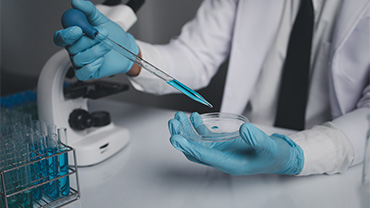
It is very important to increase the scientific advances in the knowledge of diseases, methods for their diagnosis and, above all, the introduction of new drugs on the market produced by pharmaceutical companies. The basis of these advances is biomedical research, which must be conducted by research and scientific staff properly trained. Since the Universitat is the only institution responsible for postgraduate training, this Doctoral Programme aims to train researchers and scientists in the field of medicines which can subsequently increase the critical mass of researchers at the Universitat itself or in public or private Biomedical Research Centres, in the technical and scientific regional, national and international health administration bodies, as well as in the research, development and innovation departments of pharmaceutical companies. On the other hand, the factors that accompany the development of new drugs and medicines sometimes mean that the existing information about them can reach the mediatised society or, at the very least, in biased at way. Thus, the health professionals working in public entities are the ones who can act independently, providing the appropriate information for the correct training of future professionals, instilling in them the ability to screen out, select and discern in order to be able to apply the most appropriate care guideline in each case with good judgement (rational use). Based on the need to train specialists in medicine, this Doctoral Programme in “Biomedicine and Pharmacy” has been developed. The programme is the result of the merger of these doctoral programmes: Pharmacology with Quality Award and Pharmaceutical Technology (RD.778/1998). The doctoral programme in Pharmacology obtained the Quality Award in 2004, and is renewed each year. The Universitat de València Estudi General has been teaching the doctoral programme in Biomedicine and Pharmacy since 2006-2007 with the Quality Award RD.56/2005, and it has been taught uninterruptedly until today. This programme has obtained recently the Award for Excellence (2012).
As a general entry requirement they must be in one of the cases of article 6 of RD 99/2011 or of the second additional provision of said Royal Decree.
1. Generally, for accessing to the official doctoral programme will be necessary to hold the Spanish qualifications of Undergraduate Degree, or equivalent, and of University Master’s Degree.
2. Likewise, applicants under the following circumstances also can access:
a) To hold a Spanish university qualification or from other country of the European Higher Education Area, which gives access to the Master’s Degree, according to the provisions of the Royal Decree 1393/2007, 29 October, and they should have passed at least 300 credits of their official university studies, from which at least 60 have to be of Master’s studies.
b) To hold an Undergraduate Degree whose duration, according to the rules of Community Law, is at least of 300 ECTS credits. Those graduates have to take compulsorily the bridging courses established in the provisions of the article 7.2 of these regulations, unless the curriculum of the corresponding undergraduate degree includes research training credits, whose training value is equivalent to the research credits to those from Master’s studies.
c) The university graduates who, after obtaining a training place in the corresponding entry test for specific health training, have passed with a positive assessment at least two training years of a programme for obtaining the official certificate of any of the specialisations in Health Sciences.
d) To hold a degree obtained according to foreign educational systems, without the need of its accreditation, after verification by the university that it certifies a level of training equivalent to the official Spanish qualification of the Master’s Degree and which confers in the issuance country of the degree the access to doctoral studies. This admission does not imply, in any case, the accreditation of the previous degree or its recognition for other purposes different to the access to Doctoral Studies.
e) To hold other Spanish Doctoral qualification obtained according to previous university regulations.
f) To hold an official university degree that has obtained the correspondence to level 3 of the Spanish Framework of Qualifications for Higher Education, in accordance with the procedure established in Royal Decree 967/2014, of 21 November, which establishes the requirements and procedure for the homologation and declaration of equivalence to an official university degree and academic level and for the validation of foreign higher education studies, and the procedure for determining the correspondence to the levels of the Spanish Framework of Qualifications for Higher Education of the official degrees of Architect, Engineer, Graduate, Technical Architect, Technical Engineer and Advanced Diploma.
Second additional provision. Integration into new doctoral teachings established in the present royal decree.
1. PhD students who have started their doctoral programme under previous university ordinations, will be able to enter the doctoral courses covered in this Royal Decree, upon admission of the university in accordance with the provisions of this Royal Decree and the rules of the own university.
2. Graduates, architects or engineers holding a Diploma of Advanced Studies (DEA, a tertiary education degree) obtained in accordance with the provisions of the Royal Decree 77/1998, 30 April, or having achieved Research Sufficiency as regulated by Royal Decree 185/1985, 23 January, would be admitted to the doctoral studies regulated in the present royal decree.
Recommended entry profile:
a) Students with the appropriate access profile to the doctoral programme must have completed the Master’s Degree in Research and Rational Use of Medicines associated with this doctoral programme.
Students who have completed Doctoral Programmes related to health sciences, such as those provided by the Department of Pharmacology, Pharmacy and Pharmaceutical Technology, Physiology and others related, holding the Diploma of Advanced Studies (DEA, a tertiary education degree), obtained in accordance with the Royal Decree 778/98 or the Research Proficiency, according to the regulations of the Royal Decree 185/85 are also considered ideal entry profiles.
It is required that students take at least 20 ECTS selected from the list detailed in section 3.4. of the Curriculum as specific training supplement. Students entering under the assumption 2.c do not need to carry out the aforementioned specific training.
The students who fulfil the requirements will entry the doctoral programme, and the Doctoral Studies Academic Committee will be the responsible for verifying the compliance of the above requirements for the admission of the applicant.

Entry requirements:
As general entry requirement they should be contemplated in some of the presumptions of the article 6 of the RD 99/2011 or of the second additional provision of such Royal Decree.
The recommended entry profile is for the student to have taken official master’s degree studies with advanced and accredited contents in research methodology; preferably, the Master’s Degree in Oncologic Nursery, Master’s Degree in Social and Health Care in Dependency, Master’s Degree in Public Health and Sanitary Management, Inter-University Master’s Degree in Development Cooperation, Research Orientation Specialized in Health in developing countries and Master's Degree in Gender and Equality Policies.
Another recommended entry profile is that of the university graduates who, after obtaining a training place in the corresponding entry test for specific health training, have passed with a positive assessment at least two training years of a programme for obtaining the official certificate of any of the specialisations If this is not possible, meetings may be held biannually throughout the five years of doctoral programme.in Health Sciences.
The Doctoral Programme in Nursing offers the possibility of accessing it through the master’s degrees related to health sciences. In this case, if an adequate training is not accredited, access to the doctoral programme will be subject to training complements which will have to be taken at the master’s degree programmes which offer the so-called.
The Academic Committee of the Doctoral Programme, depending on the candidate’s training curriculum will assess their adaptation to the access to the programme and, in its case, will determine if they are required to take some modules from the Master’s degree level as an specific training complement. In any case, may the bridging courses exceed 30 credits.
Entry requirements:
As specific requirement:
a) They shall have taken the Master’s Degree in Oncologic Nursery, Master’s Degree in Social and Health Care in Dependency, Master’s Degree in Public Health and Sanitary Management, Inter-University Master’s Degree in Development Cooperation, Research Orientation Specialized in Health in developing countries and Master's Degree in Gender and Equality Policies. Holding the Diploma d'Estudis Avançats (DEA-a tertiary education degree)- obtained according to the Royal Decree 778/98– or the Research Proficiency- according to the regulations of the Royal Decree 185/85, they must have been completed it within Doctoral Programmes related to this.
b) Those who have completed other master’s studies different to those mentioned before may be also admitted. In these cases, specific training complements will be required in the level of Master’s degree being adequate and coherent to the scientific field of the doctoral programme.
The students who fulfil the requirements will entry the doctoral programme, and the Doctoral Studies Academic Committee will be the responsible for verifying the compliance of the above requirements for the admission of the applicant.
c) Candidates will be required to have a B1 level of English.

Requisitos específicos:
1.- Deberán haber cursado el Máster en Avances en Investigación y Tratamientos en Psicopatología y Salud asociado a este programa de doctorado u otros estudios del mismo nivel y rama de conocimiento.
2.- En el caso de estar en posesión del Diploma de Estudios Avanzados (DEA) obtenido de acuerdo con lo dispuesto en el RD 778/98 o haber alcanzado la Suficiencia Investigadora según lo regulado por el RD 185/85 deberán haberlo cursado en programas de Doctorado afines al área de conocimiento.
Solo se aceptará a aquellos candidatos que cumplan con los requisitos de entrada y que además presenten una carta donde se presente el compromiso de algún director de Tesis Doctoral del Programa de Doctorado Psicología Clínica y de la Salud a dirigir la Tesis Doctoral del solicitante (con la firma correspondiente en dicho documento).

General requirement of acces:
They should be covered by the article 6 of RD 99/2011 or by the second additional disposition of said Royal Decree. http:// www.boe.es/diario_boe/txt.php?id=BOE-A-2011-2541
-To access it is necessary to hold a Spanish official university degree or other issued by a higher education institution of the European Higher Education Area that authorise in the issuing country to access the doctoral education.
-Also, the graduates according to educational systems external to the European Higher Education Area can access without the need of the approval of their qualifications, prior verification by the university that they prove a training level equivalent to the pertinent Spanish official university degrees and that authorise in the degree issuing country to access postgraduate education. The access through this pathway will not imply, in any case, the official approval of the certification prior to the possession of the person interested, nor its recognition to other effects apart from studying the Master’s Degree
-To hold a graduate certification of at least 300 credits. As specific criteria/requirement:
1.-Applicants must have studie a Master’s Degree or other studies of the same level and field of knowledge. In the event of holding the Diploma d'Estudis Avançats (DEA-a tertiary education degree)- obtained according to the Royal Decree 778/98– or the Research Proficiency- according to the regulations of the Royal Decree 185/85–, they must have been completed it within Doctoral Programme of Physiopathology of Stomatognathic System.
2.-Or either holding a title equivalent to the previous non-related to the EEES, following verification of the UV.
3.-Or either having passed 60 credits in one or several Master’s Degrees in fields of knowledge in Dentistry or Stomatology.
4.-To hold an Undergraduate Degree in Dentistry of at least 300 credits. The necessary training complements that are listed under the article 6.2 of the R.D. 99/2011 will correspond to the basic research module in Dentistry of the Master’s Degree in Dental Sciences of the UV or either having carried out a Master’s Degree which include the research complements equivalent to 15 credits ECTS. The details of the basic research module in Dentistry of the Master’s Degree in Dental Sciences of the UV are those listed under the section 3.4.

As general entry requirement they should be contemplated in some of the presumptions of the article 6 of the RD 99/2011 or of the second additional provision of such Royal Decree.
SPECIFIC ENTRY REQUIREMENTS:
Recommended entry profile
This programme is aimed at those who wish to be trained as researchers in the field of Food Science. The programme is designed to develop the skills to conduct research and perform high quality teaching careers.
In addition, the student must demonstrate their proficiency of languages in which teaching is taught in the training period of the Doctoral Programme (Spanish).
The recommended entry profile consists of those students who have completed formal studies that lead to the Doctoral Programme in their training period, in any of the fields related to:
· Food Quality and Safety
· Nutrition
The Master’s Degree in Food Quality and Safety of the UV is the most recommendable access path for students in this doctoral programme, ensuring the background needed. However, it is not the only access path, considering other university studies or professional
experience previously acquired who have provided students advanced knowledge of any of the following themes related to food science as Nutrition, Dietetics, Diet Therapy,
Food Science, Food Technology, Food Biotechnology, Food Toxicology, Food Quality Management, Food Hygiene, etc. which provide these students the following skills and competences:
· abilities and generic skills such as analysing, evaluating and synthesizing new and complex ideas in a critical way, including several paths: research, creative from innovative designs, and the driving force of various technology disciplines, just like the independent development of their own learning and their involvement in a teamwork environment.
· specific competencies related to de advanced knowledge acquisition and skills in the application of technology in the field of design, analysis, quality control and food safety from a researcher approach on the field of food science and to study doctoral studies, as: To be able to assess the influence of food components on the quality of food, to handle the statistical methodology and be able to analyse problems. Having knowledge of regulatory procedures in the management of food quality and ability to adapt processes related to current food hygiene regulations and food quality management systems, possessing the technical skills and analytical methods to assess various aspects of food safety. Knowing scientific basis of nutrition and managing skilfully the necessary tools to assess eating habits for techniques, strategies and models of nutritional intervention in special physiological situations, as well as the most prevalent diseases or those related with food, being able to recognize nutritional needs of specific communities.
STUDENTS WITH SPECIAL EDUCATIONAL NEEDS: Regarding to entry systems and procedures adapted to students with special educational needs, the University of Valencia has the Unit for the Integration of People with Disabilities (UPD), which ensures the respect for the principle of equal opportunities and non discrimination and supports the collective of students with special educational needs.
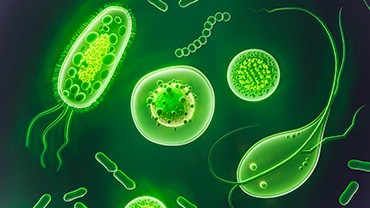
El requisito general para el acceso deberá estar recogido en alguno de los supuestos
del artículo 6 del RD 99/2011 o de la disposición adicional segunda de dicho
Real Decreto.
Como perfil idóneo de acceso se establece el haber cursado el “Master Universitario
en Enfermedades Parasitarias Tropicales” de la Universitat de Valéncia – Estudi
General (UVEG), o bien estar en posesión del “Diploma de Estudios Avanzados
(DEA)”, obtenido de acuerdo con lo dispuesto en el RD 778/98, o bien haber alcanzado
la “Suficiencia Investigadora” según lo regulado por el RD 185/85, siempre
en el ámbito de la Parasitología, y muy especialmente en el marco de los Programas
de “Parasitología Humana y Animal” de otros RD. En este supuesto, la Comisión
Académica del Programa de Doctorado aplicará directamente la consideración
de los criterios básicos de valoración de méritos, sin necesidad de requerir complementos
formativos específicos.
También podrán ser admitidos otros perfiles de acceso diferentes al anterior supuesto
y que hacen referencia a haber cursado estudios de Máster Universitarios
diferentes al señalado en el punto anterior, e incluso en Programas de Doctorado
diferentes (con o sin DEA o Suficiencia Investigadora), pero en cualquier caso siempre
afines al Programa para el que se solicita el Verifica. Como estudios afines se
considera aquellos estudios de contenidos relacionados con la Parasitología y que
pueden estar integrados en ramas de la salud humana (como por ejemplo, enfermedades
tropicales, enfermedades infecciosas, etc.) y animal (como por ejemplo,
zoonosis, enfermedades parasitarias, etc.).
En estos supuestos, la Comisión Académica del Programa de Doctorado decidirá
sobre su admisión y valorará la pertinencia de llevar a cabo unos complementos de
formación apropiados.

As general entry requirement they should be contemplated in some of the presumptions of the article 6 of the RD 99/2011 or of the second additional provision of such Royal Decree.
Ideal entry profile:
· Holding an official Spanish Undergraduate Degree in Medicine, or equivalent, and level III MECES
· Holding an official Spanish Undergraduate Degree belonging to the area of sciences or health sciences, or equivalent, and also an official Master’s degree.
Other entry profiles:
· In the event of holding the Diploma d'Estudis Avançats (DEA-a tertiary education degree)- obtained according to the
Royal Decree 778/98– or the Research Proficiency- according to the regulations of the Royal Decree 185/85–, they must have been completed it within Doctoral Programmes related to this.
· The university graduates who, after obtaining a training place in the corresponding entry test for specific health training, have passed with a positive assessment at least two training years of a programme for obtaining the official certificate of any of the specialisations in Health Sciences.
· Holding an official Spanish Undergraduate Degree belonging to the area of sciences or health sciences, or equivalent, and also an official Master’s degree.
To hold a Spanish university qualification or from other country of the European Higher Education Area, which gives access to the Master’s Degree, according to the provisions of the Royal Decree 1393/2007, 29 October, and having passed at least 300 credits of their official university studies, from which at least 60 have to be of Master’s studies.
· To hold an Undergraduate Degree whose duration according to the rules of Community Law is at least of 300 credits.
For the access profiles 5,6 and 7, the Academic Committee of the Doctoral Programme will assess if the studies carried out are equivalent and bear any relation to those identified as suitable access profile. In this event, the Academic Committee will require students to carry out, as a complementary training, the module of Biomedical Research Methodology belonging to the Master’s Degree in Biomedical Research of the UV.

In general, to access an official doctoral program, it will be necessary to be in possession of official Spanish Bachelor's degrees, or equivalent, and a Master's degree, or equivalent, provided that at least 300 ECTS credits have been passed in the set of these two courses.
Likewise, those who are in any of the following situations may access:
a) Be in possession of official Spanish university degrees or equivalent Spanish degrees provided that at least 300 ECTS credits have been passed in the set of these courses and accredit a level 3 of the Spanish Qualifications Framework for Higher Education.
b) Be in possession of a degree obtained in accordance with foreign educational systems belonging to the European Higher Education Area (EHEA), without the need for homologation, which accredits level 7 of the European Qualifications Framework provided that said degree enables access to doctoral studies in the country in which it was issued. This admission will not imply, in any case, the homologation of the previous degree held by the interested party or its recognition for any purposes other than access to doctoral studies.
c) Being in possession of a degree obtained in accordance with foreign educational systems outside the EHEA, without the need for its homologation, after verification by the university that it accredits a level of training equivalent to that of the official Spanish Master's degree and that it qualifies in the country of issue of the degree for access to doctoral studies. This admission will not imply, in any case, the homologation of the previous degree held by the interested party or its recognition for any purposes other than access to doctoral studies.
d) Being in possession of another Doctorate degree.
e) University graduates who, after obtaining a training place in the corresponding access test for specialized health training places, have successfully completed at least two years of training in a program to obtain the official degree in one of the specialties in Health Sciences, may also be able to access.
As a specific criterion/requirement:
a) They must have completed a Master's Degree or other studies of the same level and branch of knowledge. In the case of being in possession of the Diploma of Advanced Studies (DEA) obtained in accordance with the provisions of RD 778/98 or having achieved Research Sufficiency as regulated by RD 185/85, they must have completed it in Doctorate programs related to the doctorate program in Optometry and Vision Sciences.
b) Or have a degree equivalent to the previous one outside the EHEA, after verification by the University of Valencia.
c) Or have passed 60 credits in one or several university master's degrees in areas of knowledge in Optometry and Vision Sciences.
d) Be in possession of a Graduate degree in the area of Optics and Optometry of at least 300 credits.
Admission to the doctorate program includes the requirement of specific training complements. These training supplements must be completed during the initial period of development of the thesis, within a maximum period of one academic year, and will be considered, for the purposes of public prices and the granting of scholarships and study grants, as training at the doctoral level.

Entry general requirement
As general entry requirement they should be contemplated in some of the presumptions of the article 6 of the RD 99/2011 or of the second additional provision of such Royal Decree.
Suitable access profiles
- Holding a Spanish official Master’s Degree in Physiology by the UV
Holding the Diploma d'Estudis Avançats (DEA-a tertiary education degree)- obtained according to the Royal Decree 778/98– or the Research Proficiency- according to the regulations of the Royal Decree 185/85, in which case students should have obtained it in the Doctoral Programme in Physiology of the UV.
Suitable access profiles
- Holding a Spanish official Master’s Degree related to Physiology by the UV
Holding the Diploma d'Estudis Avançats (DEA-a tertiary education degree)- obtained according to the Royal Decree 778/98– or the Research Proficiency- according to the regulations of the Royal Decree 185/85, in which case students should have obtained it in the Doctoral Programme in Physiology of the UV. -Holding a Spanish official Degree in Medicine or equivalent after obtaining the place in the corresponding admission exams in specialised health training, having passed with positive assessment at least two years of training of the programme to obtain an official certificate of Consultant.
Whoever has taken Master’s Degree studies of an equivalent content to the suitable access profile or whoever falls within any of the cases contemplated in the section 2 of the article 6 of the Royal Decree 99/2011 may also be accepted.
In this case the Academic Committee of the Doctoral Programme will assess if the studies carried out are equivalent and bear any relation to those generally required to be admitted in the doctoral programme in Physiology. In this event, the Academic Committee will require students students to study as a complementary training, some of the subjects of the field of Methodology for the research in Physiology belonging with the Master’s Degree in Physiology of the UV.The link of methodology for the research in Physiology is:www.uv.es/master-physiology

This doctoral programme is of obvious academic interest since, from the implementation of the degree level to the Physiotherapy degree, graduates have the opportunity to continue their academic training by specialising through the master's degree and finally achieve the doctoral degree through the doctoral programme in Physiotherapy. Likewise, in the scientific-professional field, its relevance is clear, given that, for society, the figure of a professional who not only applies the different tools conferred by Physiotherapy to prevent and treat injuries or pathologies of people, but who is also capable of contributing knowledge to the profession from a scientific and technical point of view, is essential.
Specific Eligibility Criteria
General Access Requirement:
As a general access requirement, they will have to be in one of the cases of article 6 of RD 99/2011 or of the second additional provision of the aforementioned Spanish Royal Decree.
As specific criteria/requirements:
Recommended entry profiles:
Students must have completed the official Master’s Degree in Functional Recovery in Physiotherapy or the Master's Degree in Physiotherapy in the Ageing Process: Social and Health Care Strategies or other studies of the same level and with training content in branches of knowledge related to Physiotherapy.
Other access profiles:
• Be in possession of the Diploma of Advanced Studies (DAS) obtained in accordance with the provisions of RD 778/98 or have achieved research sufficiency according to that regulated by RD 185/85 will have studied in doctoral programmes related to Physiotherapy, in addition, Sciences of Physical Activity and Sport and / or degrees in Health Sciences.
• Holding an official Spanish university degree, or from another country belonging to the European Higher Education Area, which qualifies for access to a master's degree in accordance with the provisions of article 16 of the Spanish Royal Decree 1393/2007, of 29 October, and having passed a minimum of 300 ECTS credits in official university studies, of which at least 60 must be at master's degree level related to Health Sciences.
• Be in possession of an official Spanish graduate degree, the duration of which, in accordance with the rules of Community law, is at least 300 ECTS credits related to Health Sciences.
In the case of these last three profiles, the requirement of specific training complements could be included, as described in section 3.4 of the verification report (training complements).
All applicants will have to accredit a spoken and written command of at least one of the two official languages of the Valencian Community with a level equivalent to B2 on the scale of the Common European Framework of Reference for Languages.
Students who meet the above requirements will be admitted to the doctoral programme, and the Academic Committee of the Doctoral Programme (CAD) will be in charge of verifying the fulfilment of the above requirements for the admission of the doctoral student.

This doctorate was initially created by integrating doctoral programmes in Social and Health Care for Dependent People (ASSDE) and a research line in Physical Activity and Sport (RD 99/2011). Subsequently, at the Faculty of Physical Activity and Sport Sciences a specific programme was verified and the interdisciplinary part of Promotion of Personal Autonomy and Socio-Health Care for Dependent People is essentially based on the collaboration between Nursing, Physiotherapy, Social Work. The Universitat de València has been recognised for years for its excellence in caring for sensitive groups. Therefore, it makes sense for this programme to be offered in a place where there is high recognition for teaching, research and management in the area of attention to diversity. The initial programme focused on social and health care for dependent people was the only one in this field: it existed with a generalist and multidisciplinary nature and was the only one with an integrated “health and social” perspective at national level, as the few existing programmes opted predominantly for an exclusively health-focused approach. Another important aspect is the emphasis on applied methodology, as most of the researchers supervising PhD theses work in this area of knowledge.
ENTRY REQUIREMENTS:
As a general entry requirement they must be in one of the cases of article 6 of RD 99/2011 or of the second additional provision of said Royal Decree.
ENTRY REQUIREMENTS/CRITERIA:
As a specific requirement:
[It is important to differentiate between: a) ideal entry profile: b) other entry profiles that, in their case, may require to take bridging courses]
a) They should be contemplated in some of the presumptions of the article 6 of the RD 99/2011 or of the second additional provision of such Royal Decree.
Ideal entry profiles: apart from the degree or the equivalent licenciatura, having studied a Master’s Degree in issues geared towards to the improvement of the life quality from Psychology, Physical Activity and Sport, Medicine, Physiotherapy, Sociology, Social Work, Nursing or other studies of the same level and field of knowledge with equivalent training to the one incorporated to the Master’s Degree in Master's Degree in Social and Health Care. The access is universal and therefore these competencies and contents as advanced and specific training may proceed from different disciplines providing that the knowledge in the field of people who are dependent upon others is credited, the social resources available for providing their autonomy and quality of life; the appropriated techniques for the design and application of services for promoting their autonomy and social care for dependent people.
b) Those who have completed other master’s studies different to those mentioned before may be also admitted [in which case, they may be required to study specific training complements at the level of the Master’s Degree].
Students who fulfil the requirements will entry the doctoral programme, and the Doctoral Studies Academic Committee will be the responsible for verifying the compliance of the above requirements for the admission of the applicant.
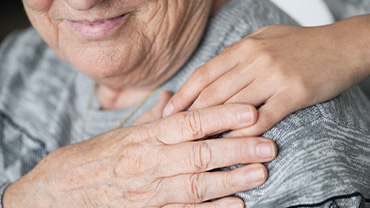
As general entry requirement they should be contemplated in some of the presumptions of the article 6 of the RD 99/2011 or of the second additional provision of such Royal Decree.
ENTRY REQUIREMENTS/CRITERIA:
Specific requirement:
a) Ideal entry profiles: having taken the University Master’s degree in Research and Interventions in Master's Physical Activity and Sports Sciences related to this doctoral programme. An ideal entry profile could also be that of those people who have taken a master’s degree in the area of psychology or in the area of health. In all cases, the Master’s degree Thesis will have to be in relationship with an empirical problem with contrasted results, a review study, meta-analysis or a bibliometric study. A copy of the Master’s Degree Final Project shall be submitted. In the event of holding the Diploma d'Estudis Avançats (DEA-a tertiary education degree)- obtained according to the Royal Decree 778/98– or the Research Proficiency- according to the regulations of the Royal Decree 185/85– ,
they must have been completed within Doctoral Programmes related to this.
b) Also, the students who have taken other Master’s Degree studies different to the ones mentioned above can be admitted, whenever they are Master’s degree related to these or to the research lines of the doctoral studies. In case the student has not received training in their master’s period in relation to research methodology or specific topics related to ageing, they will have to take a series of specific training complements at a master’s degree level
pointed out in the appropriate section. The students who fulfil the requirements will entry the doctoral programme, and the Doctoral Studies Academic Committee will be the responsible for verifying the compliance of the above requirements for the admission of the applicant. Additionally, all students who access through this profile will have to present a doctoral thesis programme endorsed by one of the teachers who participate in the doctoral programme. Such teachers will have to indicate their compromise for tutoring.

ADMISSION REQUIREMENTS/ADMISSION CRITERIA:
As general entry requirement the applicants should be contemplated in some of the presumptions of the article 6 of the RD 99/2011 or of the second additional provision of such Royal Decree.
The first two years of the programme establishment a maximum of 20 doctoral students will be accepted, as well as 5 part-time students.
As specific requirement:
1.- The ideal profile of student of the programme should be graduated (or equivalent) in Psychology. The student should have taken preferably a Master’s degree in the scope of Psychology, with a good prior training in methodological aspects and enough knowledge in English language to be able to carry out seminara and other activities in this language. Exceptionally, and as long as there is not an own doctoral programme about Logopedia and/or Language Difficulties, will be able to access Graduated in Logopedia (or equivalent) that had taken, at leas, 60 ECTS in Master’s degrees related to this scope of knowledge (it does not require preset supplementary training).
Those who are holders of a Diploma d'Estudis Avançats (DEA-a tertiary education degree) can also access the Doctoral Programme as is regulated in the RD 778/98 or those who credit the research proficiency of a Psychology Doctoral Programme regulated by the RD 185/85.
Master’s degree in the scope of Psychology:

In order to access the Doctoral Programme it is necessary to own an official University Master’s degree, or other of similar level, expeded by an institution within the European Higher Education Area. Also applicants who hold a degree obtained according to foreign educational systems, without the need of its accreditation, after verification by the university that it certifies a level of training equivalent to the official Spanish qualification of the Master’s Degree and which confers in the issuance country of the degree the access to doctoral
studies. This admission does not imply, in any case, the accreditation of the previous degree or its recognition for other purposes different to the access to Doctoral Studies.
“To access the Doctoral Programme it will be necessary to own a Spanish official qualification of Degree or an equivalent and a University Master’s Degree. Likewise, applicants under the following circumstances also can access:
a) To hold a Spanish university qualification or from other country of the European Higher Education Area, which gives access to the Master’s Degree, according to the provisions of the Royal Decree 1393/2007, 29 October, and they should have passed at least 300 credits of their official university studies, from which at least 60 have to be of Master’s studies.b)to hold an Undergraduate Degree whose duration, according to the rules of Community Law, is at least of 300 ECTS credits.
c) to hold a degree obtained according to foreign educational systems, without the need of its accreditation, after verification by the university that it certifies a level of training equivalent to the official Spanish qualification of the Master’s Degree and which confers in the issuance country of the degree the access to doctoral studies. This admission doesn’t not imply, in any case, the accreditation of the previous degree or its recognition for other purposes different to the access to Doctoral Studies.
e) To hold other Spanish Doctoral qualification obtained according to previous university regulations.”
According to the decision criteria adopted by the Academic Doctoral Committee:
a) Admitted students who have a university Master’s degree in the field of historical or science information and communication studies will have to take a complementary module of the Master’s Degree on History of the Science and Scientific Communication imparted by the same institutions which impart this doctoral programme.
a.1. Students with Master’s Degrees within the area fo historic studies will take “Introduction to Scientific Communication” (9 ECTS credits)
a.2. Students with master’s degrees on science information and communication will take “Introduction to Science’s History” (9 ECTS credits)
b) Students with any other Master’s degrees studies or postgraduate studies different to these will have to take the following complementary modules: Introduction to Science’s History” (9 ECTS credits) and “Introduction to Scientific Communication” (9 ECTS). These modules are described in the section “Bridging Courses”
A wide diffusion campaign on the doctoral programme, both in Spain and outside, specially in the Hispano-American scope, will take place via social networks, lists specialised in information diffusion, university publications, announcements and web sites of the institutions implied on the programme.

Applicants must be in one of the situations referred to in the RD 99/2011 or the second additional provision of the Royal Decree
Pre-registration in doctoral studies will be done in the Postgraduate Service of the University of Valencia in accordance with the current regulations
— maximum number of accepted doctoral students each year: 20
The doctoral programme in Advanced Hispanic Studies yearly offers 20 places, out of which 5% (1 place) will be reserved for students with disabilities. 30% of the places will be offered to part-time students (6 places). Part-time doctoral students will have to justify in front of the Programme’s Academic Committee their reason for entering in the part-time modality.
Additional compulsory requisites for foreign university qualifications
Students who do not have homologated qualifications expeded by a superior education institute different to the EEES will additionally require the obtention of an access resolution favorable to the University of Valencia’s Rector. In order to obtain it, the applicant will have to contact the Postgraduate Service, Third Cycle Management (doctorado@uv.es).
—Acceptance and selection requirements: the body in charge of the students’ admission is the Academic Committee of the doctoral programme, as stated in the regulations for Postgraduate Official Studies of the University of Valencia.
Students who adjust to the University of Valencia general requisites will be assessed by the Academic Committee
of the doctoral programme in Advanced Hispanic Studies, in accordance with the programme’s specific admission requisites and merit valuing criteria
, in order to be accepted in our doctoral programme during their training period.

The Doctoral Programme in “Communication” aims to: - Deepen knowledge of the basic principles of communication and the shaping of the world view through language and culture. - Recognise and reflect on the communication policies of the different media systems in the information society. - Analyse the impact of new technologies on social and political organisation, and in all areas, from the administrative and bureaucratic to the cultural and economic. - Acquire the necessary skills with regard to the media languages used in the communicative flow of the information society. - Achieve the suitability to teach within the framework of the training and labour integration requirements of the European Higher Education Area. - Acquire competence and skills in the development of media research projects.
ADMISSION REQUIREMENTS:
As general entry requirement they must be in one of the cases of article 6 of RD 99/2011 or of the second additional provision of said Royal Decree.
ADMISSION REQUIREMENTS/CRITERIA:
As a specific requirement:
a) Applicants must have completed the Master's Degree/s in Interculturality, Communication and European Studies taught at the Universitat de València. In the case of being in possession of the Diploma of Advanced Studies (DEA, a tertiary education degree), obtained in accordance with the provisions of Royal Decree 778/98 or having achieved Research Sufficiency as regulated by Royal Decree 185/85, they must have studied it in Doctoral Programmes related to this one.
b) The recommended entry profile is that of a student from the Master's Degree in Interculturality, Communication and European Studies of the Universitat de València.
c) Students coming from other Master's Degrees from other universities with comparable studies to the Master's Degree in Communication and Interculturality.
The following criteria will be taken into account when selecting students::

According to the Royal Decree 99/2011, 28 January, which regulates the official doctoral studies, it will be necessary to hold the Spanish qualifications of Undergraduate Degree, or equivalent, and of University Master’s Degree.
However, those students who are under these circumstances will access to the Doctoral Studies:
a) Holding a Spanish university qualification or from other country of the European Higher Education Area, which gives access to the Master’s Degree, according to the provisions of article 16 of the
Royal Decree 1393/2007, 29 October, which establish the organisation of official university studies and having passed at least 300 credits of their
official university studies, from which at least 60 have to be of Master’s studies.
b) Holding an Undergraduate Degree whose duration, whose duration, according to the rules of Community Law, is at least of 300 ECTS credits. These graduate students must compulsory
take the supplementary training, unless the curriculum of the degree includes credits in research training, equivalent as for training value to the credits in research proceeding from the Master’s Degree studies.
c) Holding a university certificate, after obtaining a training place in the corresponding entry test for specific health training, have passed with a positive assessment at least two training years
of a programme for obtaining the official certificate of any of the specialisations in Health Sciences.
d) Holding a degree obtained according to foreign educational systems, without the need of its accreditation, after verification by the university that it certifies a level of training equivalent to the official Spanish qualification of the Master’s Degree and which confers in the issuance country of the degree the access to doctoral studies. This admission doesn’t not imply, in any case, the accreditation of the previous degree or its recognition for other purposes different to the access to Doctoral Studies.
e) Holding other Spanish Doctoral qualification obtained according to previous university regulations.
In order to be admitted in the Doctoral Programme in Contemporary History, the candidate must submit, with the application attached a complete CV and a brief declaration (a page as maximum) where the
reasons why they want to enter the programme, their expectations, the research lines of interest and the topic of the doctoral thesis.
The applicant will attach reference letters of prestigious researchers to the application form. Those candidates who apply for study in the part-time programme should add to the inner part of the application form that they agree with the reasons that made them opt for this modality. To admit their application form, the Academic Committee may ask them to documentary evidence the acquired reasons.

As general entry requirement they should be contemplated in some of the presumptions of the article 6 of the RD 99/2011 or of the second additional provision of such Royal Decree.
Applicants must have study a Master’s Degree or other studies of the same level. In the event of holding the Diploma d'Estudis Avançats (DEA-a tertiary education degree)- obtained according to the Royal Decree 778/98– or the Research Proficiency- according to the regulations of the Royal Decree 185/85–, they must have been completed it within Doctoral Programmes related to “Contemporary Philosophical Thought”.

ACCESS REQUIREMENTS:
As a general access requirement the candidates must be in one of the cases of article 6 of RD 99/2011 or of the second additional provision of said Royal Decree.
As a specific requirement with priority access:
1.- To have completed one of the following master's degrees associated with the Doctoral Programme in Education:
In the case of being in possession of the Diploma of Advanced Studies (DEA) obtained in accordance with the provisions of RD. 778/98 or having achieved Research Sufficiency as regulated by RD. 185/85, they must have obtained them in Doctoral programmes related to the field of Education such as: 335-D Environmental Education; 270-E Personal development and social participation; 120-F Social and political studies of education; 270-D Educational intervention: methods, evaluation, diagnosis and guidance; 335-C Pedagogical actions and community development; 100-B Crisis of legitimacy of educational thought and practices.
To have completed the Doctorate in Education (RD.1393/2007).
Also any official Master's degree or equivalent studies abroad whose contents are deemed equivalent to the studies listed or sufficient from the point of view of the field of Education.
The prior knowledge required is, therefore, that which refers to a specialised Master's level in any field of Education, with special emphasis on the development of a small amount of experience derived from the preparation and defence of a report (TFM). The language of the programme is Spanish, although the necessary comprehension of texts in English is required. Any additional training will be linked to the mobility activities chosen in the course of the programme.
2.- For candidates coming from other degrees, the Academic Coordination Committee of the Doctoral Programme (CAPD) will require training in the field of Education or accredited professional and innovative experience in this field. In each case, the necessary training complements will be determined from among the contents of the associated Masters already listed.
Students who meet the above requirements will be admitted to the doctoral programme and the Academic Coordination Committee of the Doctoral Programme (CCD) will be responsible for verifying the fulfilment of the above requirements for the admission of the doctoral student.
The CCD is composed of the chairperson, a member per each consolidated group linked to the programme -at least one per pathway-, a responsible for relations with other units and universities and coordinator of training stays.
For guidance and advice concerned with the academic and professional career the university community hasthe OPAL support and guidance services (counselling, training, career opportunities, recruitment agency and entrepreneurship).

As general entry requirement they should be contemplated in some of the presumptions of the article 6 of the RD 99/2011 or of the second additional provision of such Royal Decree.
ENTRY REQUIREMENTS/CRITERIA:
As specific requirement:
Recommended profile:
a)holding an inter-university master’s degree title in Ethics and Democracy by the Universitat de València and the Universitat Jaume I.
b) Holding the Diploma d'Estudis Avançats (DEA-a tertiary education degree)- obtained according to the Royal Decree 778/98– or the Research Proficiency- according to the regulations of the Royal Decree 185/85; in both cases, they will have to be obtained through the inter-university doctoral programme
in Ethics and Democracy by the Universitat de València and the Universitat Jaume I.
Other entry profiles:
c) Holding an EHEA official a master’s degree title in the field of Ethics and Political Philosophy.
b) Holding the Diploma d'Estudis Avançats (DEA-a tertiary education degree)- obtained according to the Royal Decree 778/98– or the Research Proficiency- according to the regulations of the Royal Decree 185/85; in both cases, they will have to be obtained in the field of Moral Philosophy.
d) Those holding a Master’s degree in the field of Ethics and Political Philosophy can also be admitted if it has been obtained according to the European Higher Education Area. Official recognition of these titles is not necessary but a previous verification that the title
confirms equivalence to the corresponding Spanish Master’s degree titles and confirms that in the country of origin they empower to take up Doctoral Studies Programmes. The affinity of these qualifications will be determined by the Office of the vice-principal of Research of the
UV or the Universitat Jaume I, after being favourably informed by the Doctoral Programme Academic
Committee.
The students who fulfil the requirements will entry the doctoral programme, and the Doctoral Studies Academic Committee will be the responsible for verifying the compliance of the above requirements for the admission of the applicant.

The ideal entry profile for the doctoral studies is a University training in History of Art through official postgraduate studies (official Master’s degree according to the RD 1393/2007, Diploma de Estudios Avanzados [a tertiary education degree] - DEA according to the provisions of the RD 778/98, or Research Proficiency according to what is regulated in the RD 185/85); secondly, ability for understanding and reasoning in Spanish, that for the candidates from non-Spanish-speaking places has to be accredited and equivalent or higher than a B2.
Other entry profiles that, in their case, may require to take bridging courses:
·University graduates with professional experience in the field of History of Art of at least three years and with university training through official postgraduate studies (official Master’s degree according to the RD 1393/2007, Diploma de Estudios Avanzados - DEA [a tertiary education degree] according to the provisions of the RD 778/98, or Research Proficiency according to what is regulated in the RD 185/85).
·University graduates with professional experience in the field of History of Art of at least three years and with university training through official postgraduate studies (official Master’s degree according to the RD 1393/2007, Diploma de Estudios Avanzados - DEA [a tertiary education degree] according to the provisions of the RD 778/98, or Research Proficiency according to what is regulated in the RD 185/85).
The Academic Committee of the Doctoral Programme (CAPD) will assess whether the training or professional experience accredited have provided them the mastery of the research methodology that authorises them to undertake research tasks in the field of the artistic activity, qualifying them to conceive and develop an original research, focused on the elaboration and defence of a doctoral thesis about this field. Otherwise, the CAPD will establish the appropriate bridging courses through the Master’s Degree in History of Art and Visual Culture (UV-UJI), fundamentally through the module of “Research Training”. For Diploma de Estudios Avanzados - DEA [a tertiary education degree] and masters’ degrees related to History of Art, (such as Fine Arts, Architecture, Audiovisual Communication, Aesthetics, Music, Cultural Heritage, etc.) a training supplement of 18 credits of the Master’s Degree in “History of Art and Visual Culture” (UV-UJI) is stablished: The compulsory module “Research training” (15 credits), and one subject from the three optative modules of “Disciplinary training” the student can choose.

As general entry requirement the applicants status should be contemplated in some of the presumptions of the article 6 of the RD 99/2011 or of the second additional provision of such Royal Decree.
ADMISION REQUIREMENTS/CRITERIA:
Specific requirements:
a) Candidates’ ideal profile. People graduated in master’s degrees associated to this doctoral programme, mentioned above, correspond to the ideal entry profile. Moreover, those holding the Diploma d'Estudis Avançats (DEA-a tertiary education degree)- obtained according to the Royal Decree 778/98, or the Research Proficiency, according to the regulations of the Royal Decree 185/85, in Doctoral Programmes related to this one.
b) Other entry profiles.
Those people who have studied a national or foreign official Master’s Degree(with a minimum of 60 credits) will also be considered to be ideal. offering training to develop philological research: (in areas such as text editing, diachronic analysis of languages, onomastics, historical sociolinguistics, corpus analysis, technological applications for philological studies), literary and cultural (in fields such as literary history, compared literature, literary genre, multiculturalism, studies of genre), linguistic (in areas such as the internal study of languages, pragmatics,
Psycholinguistics, translation and interpretation, the teaching and learning of languages, language industries).

Specific admission requirements
1. The requirements to access doctoral programmes are established by the Royal Decree 99/2011, 28 January, which regulates the official doctoral studies, that sets that it will be necessary to hold the Spanish qualifications of Undergraduate Degree, or equivalent, and of University Master’s Degree to access them.
Also can access to them if having some of the following requirements
To hold other Spanish Doctoral qualification, or equivalent, and to have obtained the Researcher Proficiency (regulated by the Royal Decree 185/1985, 23 January).
To hold a Diploma de Estudios Avanzados (Tertiary Education Diploma) obtained according to the provisions of the Royal Decree 77/1998, 23 April, or to have reached the research proficiency regulated by the Royal Decree 778/1998, 30 January.
To hold other Spanish Doctoral qualification.
2. The students holding a foreign degree of higher education and want to study Doctoral Studies in Spain could access them prior accreditation of the degree to the Spanish degree that prepare for said access, in accordance with the planned procedure in the regulation in force in that regard. However, universities could accept degree holders according to foreign educational systems with no need of accreditation, but after verification that the degree certifies a level of education equivalent to the corresponding Spanish Degrees and Master’s degrees and empowers in the issuing country for accessing to doctoral studies. This admission does not imply, in any case, the accreditation of the previous degree or its recognition for other purposes different to the access to Doctoral Studies.
3. The students could access to any official Doctoral Programme related or not scientifically with their university curriculum, and in any university, prior admission executed by the responsible body of the indicated programme, according to specific admission requirements and appraisal criteria of merits that, in its case, establishes the university.
In the case of foreign students whose mother tongue is none of the Doctoral Programme languages (Spanish and English) they may be asked to prove an appropriate level in said languages.
The students of any participant universities should carry out in their university an application of enrollment in the Doctoral Programme. The applications will be sent to the Coordinating Committee of the Doctoral Programme and will be accompanied with a curriculum, the academic record and a letter of the applicants explaining their motivations. Also, when they are universities that do not take part in the Doctoral Programme, two presentation letters will be needed.
a) Credit by means of official certificate the academic throughput in the Degree or Bachelor and in the Master’s degree from which they come from.
b) Presenting before the Academic Committee a short memory (limited to 3 pages) about the research project that is going to be developed in any of the competent areas of the Doctoral Programme.
Requirements for the students that come from the other Doctoral Programme that expires:
According to the EXTINCTION CALENDAR OF THE DOCTORAL STUDIES REGULATED BY THE R.D. 778/1998 GIVEN IN THE UVA (Doctoral Committee agreement, 13 January 2012, adapting the approved on 15 June 2009). The students that have initiated their doctoral studies in prior years according to the R.D. 778/1998, could: Enrol in the Academic Guardianship by the enrollment in the Doctoral Thesis, present and defend the
Doctoral Thesis. Students that come from transfers in the Guardianship by enrollment of the Doctoral Thesis will be accepted.
The document of activities of the doctoral student will be replaced by a certificate of activities in the Doctoral Programme taken, sent by the administrative service responsible of the doctoral programme, in which will be included, if the programme considered it, the training period.

As general entry requirement they should be contemplated in some of the presumptions of the article 6 of the RD 99/2011 or of the second additional provision of such Royal Decree.
ENTRY REQUIREMENTS/CRITERIA:
As specific requirement:
The Doctoral Programme in Geography and History of the Mediterranean from Prehistory to the Modern Age, whose main aim is to train researchers in advanced studies in geography and history of the Mediterranean basin. Accordingly, it is intended for students who have completed master’s degrees whose thematic area is related with the field of archaeology, geography, history and cultural heritage, of the Universitat de València, and other universities, allowing the development of an research activity focused on the completion of the doctoral thesis, which requires the use of specific literature.
In the event of holding the Diploma d'Estudis Avançats (DEA-a tertiary education degree)- obtained according to the Royal Decree 778/98– or the Research Proficiency- according to the regulations of the Royal Decree 185/85– , they must have been completed it within Doctoral Programmes related to this.
The students who fulfil the previous requirements can access to the doctoral programme, and the University Academic Committee will be the responsible for verifying the compliance of the above requirements for the admission of the doctoral student.